

Live-English.net
Learn English Online with real teachers
40 Basic Vocabulary Words and Common Phrases for Travel in English

Embarking on a journey to a foreign country can be both exciting and a bit daunting, especially when language barriers come into play. But fear not, we’ve got you covered! This page is dedicated to all the globetrotters out there who are keen on enhancing their English language skills specifically for travel.
We’ve curated a list of 40 essential English words and phrases that will prove to be your best companions on your travels.
Whether you’re a seasoned traveler or planning your first overseas trip, mastering these words and phrases will not only boost your confidence but also enrich your travel experiences. So, let’s dive in and start preparing for your next adventure with our comprehensive travel vocabulary guide. Happy learning and safe travels!
40 essential English words and phrases for travel
- Passport – “Don’t forget to bring your passport to the airport.”
- Luggage – “Please make sure your luggage is not left unattended.”
- Reservation – “I have a reservation under the name Smith.”
- Itinerary – “Our itinerary includes stops in Rome, Paris, and London.”
- Destination – “Our final destination is Sydney.”
- Accommodation – “I’ve booked accommodation for three nights in the city center.”
- Sightseeing – “We’re going sightseeing in the old town tomorrow.”
- Currency – “What’s the local currency in Japan?”
- Boarding Pass – “Please have your boarding pass and identification ready.”
- Departure – “Our departure time is 6:00 PM.”
- Arrival – “Our estimated arrival time is 8:00 PM.”
- Customs – “You’ll need to declare any items at customs.”
- Visa – “Do I need a visa to travel to the United States?”
- Tourist – “As a tourist, I love exploring new places.”
- Landmark – “The Eiffel Tower is a famous landmark in Paris.”
- Guidebook – “I bought a guidebook to learn more about the city’s history.”
- Souvenir – “I bought a souvenir from each city we visited.”
- Jet Lag – “I’m feeling a bit of jet lag after the long flight.”
- Travel Agency – “The travel agency arranged all of our accommodations.”
- Backpack – “I prefer to travel with a backpack instead of a suitcase.”
- Could you help me, please? – When you need assistance.
- How much does this cost? – When you want to know the price of something.
- Where is the nearest…? – When you’re looking for something specific, like a bathroom or a subway station.
- I would like to book… – When you want to make a reservation.
- Do you speak English? – When you need to find someone who speaks English.
- I’m lost. Can you help me? – When you need directions.
- Can I have the menu, please? – When you’re at a restaurant and want to see the menu.
- I’m allergic to… – When you need to inform someone of your allergies.
- Can I have the bill, please? – When you’re ready to pay at a restaurant.
- What time does it open/close? – When you want to know the operating hours of a place.
- Can I have a ticket to…, please? – When you’re buying a ticket.
- Where can I catch the bus/train? – When you need to find the bus or train station.
- Is it far from here? – When you want to know the distance to a place.
- Can you recommend a good…? – When you’re looking for recommendations.
- Do you accept credit cards? – When you want to know if you can pay with a credit card.
- What’s the Wi-Fi password? – When you need to connect to the internet.
- I’d like to go to… – When you’re telling a taxi driver your destination.
- Is there a pharmacy nearby? – When you need to find a pharmacy.
- Can I try this on? – When you’re shopping for clothes and want to try something on.
- Could you take a picture of us, please? – When you want someone to take a photo of you and your group.
Wrapping Up Our English Travel Vocabulary Journey
And there you have it! We’ve journeyed through 40 essential English words and phrases that will help make your travels smoother and more enjoyable. Remember, language is a powerful tool that can open doors to understanding new cultures, making new friends, and creating unforgettable experiences.
Don’t worry if you can’t memorize all the words and phrases at once. The beauty of language learning is that it’s a continuous process. Keep practicing, and soon these words will become second nature to you.
But why stop at 40? If you’re eager to expand your travel vocabulary even further, we have an exciting offer for you. Follow us on Instagram and send us a direct message to get your hands on our comprehensive eBook (write “Travel eBook”), which features 200 essential English words and phrases for travel, plus 2 special bonuses!
We hope this guide will be a valuable resource for your travel adventures. Whether you’re exploring bustling cities, tranquil countryside, or exotic beaches, these phrases will help you navigate your way with confidence.
Thank you for joining us on this linguistic journey. We wish you all the best in your English learning and your future travels. Remember, every journey begins with a single step, or in this case, a single word. Happy travels and happy learning!
>> Learn more English vocabulary
Privacy Overview
An Artificial Intelligent English Learning Platform
Learn Advanced English Expressions for Talking about Travel Experiences

Introduction
Imagine you’re just back from an awe-inspiring trip. The azure skies, the ancient architectural marvels, the exotic cuisine – you’re bursting to share these experiences with your friends and colleagues. But when it comes to expressing these adventures in English, you feel as if your words don’t do justice to the beauty and excitement you’ve experienced. You’re not alone. Here at Lillypad.ai, we understand that one of the most enchanting aspects of learning English (or any language, for that matter) is articulating your unique experiences fluently and effortlessly.
With a team composed of experienced English language teachers and linguists, we’ve been on both sides of the language learning journey. We’ve observed, understood, and addressed the challenges faced by English learners worldwide, from grappling with complex grammar rules to finding the right expressions to convey their thoughts effectively.
In this blog post, we aim to help you master advanced English expressions for talking about travel experiences. These are not just randomly picked phrases but contextually relevant expressions commonly used by native English speakers while narrating their travel stories. Our goal is not only to help you expand your vocabulary but also to guide you on how to use these expressions in a way that feels natural and engaging.
By mastering these advanced English expressions, you’ll gain a more profound linguistic understanding and boost your confidence, enhance your communication skills, and pave the way for more meaningful conversations about your travels. With us, you’ll transform from a hesitant speaker to a compelling storyteller. So buckle up, and let’s embark on this exciting language journey together!
Your Passport to Success: Mastering Advanced English Expressions for Sharing Travel Experiences
Travel – it’s an activity that unites us all. Experiencing different cultures, sampling exotic cuisines, and marvelling at breathtaking landscapes – these are universal joys that we all share. And when it comes to sharing these experiences with others, the ability to effectively express ourselves in English is an invaluable asset.
The importance of mastering travel-related English expressions cannot be overstated, especially in the globalized world we live in today. Experts agree that travel experiences can be powerful learning tools, not only for broadening one’s worldview but also for developing language proficiency. Expressing travel experiences in English, thus, allows learners to connect with a global audience while simultaneously honing their language skills.
Consider this scenario – you’ve just returned from a fantastic trip to London. You’ve seen the iconic Big Ben, experienced the buzz of Piccadilly Circus, and indulged in some traditional English tea. Now, you want to share these experiences with your friends, colleagues, or perhaps a community of fellow travel enthusiasts. Isn’t it exciting to be able to narrate your adventures in English, connecting with listeners as they virtually travel through your words?
We understand, though, that talking about travel experiences in English might seem like a tall order. It might be intimidating to remember the right words, phrases, or idiomatic expressions. But remember, just like the first step of any journey, the key is to start.
With this content, I’m here to guide you through the nuances of travel-related English expressions. By the end of our journey, you’ll be equipped with advanced English expressions that will help you vividly narrate your travels, making your listeners feel as if they were right there with you.
Never forget, Lillypad.ai is here to support you. Whether you’re sharing a funny anecdote, expressing concern, or narrating your latest adventure, our tool is designed to assist you in every situation, making your English language journey as exciting as your world travels.

List of 20 Advanced English Phrases for Talking about Travel Experiences
Talking about travel experiences allows us to share our adventures, explore different cultures, and connect with others. In this section, we’ll explore 20 advanced English phrases that you can use to discuss your travel experiences. Let’s dive in!
Expression 1: It was a trip of a lifetime.
Explanation: This expression is used to describe a travel experience that was extraordinary and unforgettable.
Meaning, Usage, and Cultural Nuances: It conveys the idea that the trip was incredibly special and something that may only happen once in a lifetime.
When to Use It: Use this expression when you want to emphasize how remarkable and unique your travel experience was.
- After a safari in Africa, Sarah said, “It was a trip of a lifetime! Seeing the wildlife up close was an incredible experience.”
- Upon returning from a backpacking adventure in Southeast Asia, Mark exclaimed, “I can’t believe how amazing it was! Truly a trip of a lifetime.”
- While sharing stories from a visit to the Great Wall of China, Emma said, “Walking along the Great Wall was a dream come true. It was a trip of a lifetime.”
Expression 2: I was blown away by…
Explanation: This phrase is used to express intense amazement or astonishment about a particular aspect of your travel experience.
Meaning, Usage, and Cultural Nuances: It conveys a strong sense of wonder and surprise.
When to Use It: Use this phrase when you want to highlight something that deeply impressed you during your travels.
- Reflecting on a visit to the Grand Canyon, John said, “I was absolutely blown away by the breathtaking beauty of the landscape.”
- Recounting a visit to the Taj Mahal, Lisa exclaimed, “The Taj Mahal is an architectural masterpiece. I was completely blown away by its grandeur.”
- Sharing memories from a trip to Paris, Tom said, “The art and culture in Paris were incredible. I was blown away by the Louvre Museum.”
Expression 3: The scenery was out of this world.
Explanation: This expression is used to describe exceptionally stunning and captivating natural landscapes.
Meaning, Usage, and Cultural Nuances: It conveys a sense of awe and wonder at the beauty of the surroundings.
When to Use It: Use this expression when you want to emphasize the extraordinary beauty of the scenery you encountered during your travels.
- After a hike in the Swiss Alps, Sarah exclaimed, “The views were out of this world! The snow-capped peaks and pristine lakes were absolutely breathtaking.”
- Reflecting on a visit to the Great Barrier Reef, Mark said, “Diving into the crystal-clear waters was a surreal experience. The underwater scenery was out of this world.”
- Recounting a road trip through Iceland, Emma said, “The landscapes in Iceland were unlike anything I had ever seen. The volcanic landscapes and waterfalls were out of this world.”
Expression 4: I got lost in the maze of…
Explanation: This phrase is used to describe getting immersed in the vibrant and intricate surroundings of a particular place.
Meaning, Usage, and Cultural Nuances: It conveys the feeling of being captivated and enchanted by the surroundings.
When to Use It: Use this phrase when you want to express how you became completely absorbed and fascinated by the atmosphere of a location.
- Talking about a visit to the bustling streets of Tokyo, John said, “I got lost in the maze of neon lights and skyscrapers. The energy of the city was incredible.”
- Recounting a trip to the narrow alleyways of Marrakech, Lisa exclaimed, “Walking through the bustling souks, I got lost in the maze of colours, scents, and sounds.”
- Reflecting on a visit to the historic streets of Rome, Tom said, “Exploring the ancient ruins and charming neighbourhoods, I got lost in the maze of history and culture.”
Expression 5: The local cuisine was a culinary delight.
Explanation: This expression is used to describe the exceptional and delicious food you encountered during your travels.
Meaning, Usage, and Cultural Nuances: It conveys the enjoyment and satisfaction derived from trying local dishes.
When to Use It: Use this expression when you want to highlight the gastronomic experiences and the pleasure you derived from tasting local cuisine.
- After a trip to Thailand, Sarah said, “The street food in Bangkok was a culinary delight. The flavours and spices were incredible.”
- Recounting a visit to Italy, Mark exclaimed, “I indulged in pasta, pizza, and gelato. The local cuisine was a true culinary delight.”
- Reflecting on a culinary tour in France, Emma said, “From croissants to cheese and wine, the French cuisine was a culinary delight at every turn.”
Expression 6: I was immersed in the rich cultural heritage of…
Explanation: This phrase is used to convey the experience of fully engaging with the traditions, customs, and history of a particular place.
Meaning, Usage, and Cultural Nuances: It conveys a sense of deep involvement and appreciation for the cultural aspects of a destination.
When to Use It: Use this phrase when you want to express how you embraced and experienced the cultural heritage of a place you visited.
- Talking about a trip to Kyoto, John said, “I immersed myself in the rich cultural heritage of Japan. From visiting ancient temples to participating in tea ceremonies, it was an incredible experience.”
- Recounting a visit to Machu Picchu, Lisa exclaimed, “Exploring the ancient ruins and learning about the Inca civilization, I was immersed in the rich cultural heritage of Peru.”
- Reflecting on a journey through India, Tom said, “From experiencing traditional dance performances to trying local crafts, I was immersed in the rich cultural heritage of India.”
Expression 7: The locals were incredibly hospitable and welcoming.
Explanation: This phrase is used to describe the warm and friendly nature of the local people you encountered during your travels.
Meaning, Usage, and Cultural Nuances: It conveys a sense of gratitude and appreciation for the hospitality received.
When to Use It: Use this phrase when you want to express how the local community made you feel welcomed and embraced during your journey.
- After a trip to Greece, Sarah said, “The locals were incredibly hospitable and welcoming. They made me feel like part of their family.”
- Recounting a visit to Morocco, Mark exclaimed, “From staying in riads to engaging in conversations with locals, I experienced the genuine warmth and hospitality of the Moroccan people.”
- Reflecting on a trip to Thailand, Emma said, “The Thai people were so friendly and welcoming. Their hospitality made my journey even more memorable.”
Expression 8: I was in awe of the architectural marvels of…
Explanation: This phrase is used to express admiration and wonder for the impressive architecture of a particular place or landmark.
Meaning, Usage, and Cultural Nuances: It conveys a sense of astonishment and appreciation for architectural achievements.
When to Use It: Use this phrase when you want to highlight the remarkable architectural features that captivated you during your travels.
- Talking about a visit to the Eiffel Tower, John said, “I was in awe of the architectural marvel of the Eiffel Tower. It’s even more impressive up close.”
- Recounting a trip to Istanbul, Lisa exclaimed, “The Hagia Sophia and the Blue Mosque were architectural marvels that left me in awe.”
- Reflecting on a visit to the Colosseum in Rome, Tom said, “Standing inside the Colosseum, I was in awe of its grandeur and historical significance.”
Expression 9: The adventure gave me an adrenaline rush.
Explanation: This expression is used to describe an exhilarating and thrilling experience during your travels.
Meaning, Usage, and Cultural Nuances: It conveys the excitement and energy felt during adventurous activities.
When to Use It: Use this expression when you want to convey the sense of excitement and the rush of adrenaline you experienced during your travels.
- After a bungee jumping experience, Sarah said, “The jump gave me such an adrenaline rush. It was an unforgettable adventure.”
- Recounting a white-water rafting trip, Mark exclaimed, “Navigating the rapids gave me an incredible adrenaline rush. It was an adventure of a lifetime.”
- Reflecting on a hiking expedition, Emma said, “Reaching the summit of the mountain and taking in the breathtaking views gave me an adrenaline rush like no other.”

Expression 10: I found serenity in the peaceful landscapes of…
Explanation: This phrase is used to express the feeling of tranquillity and calmness experienced in serene natural settings.
Meaning, Usage, and Cultural Nuances: It conveys a sense of peace and inner harmony found in peaceful landscapes.
When to Use It: Use this phrase when you want to convey the serenity and tranquillity you experienced in the natural surroundings during your travels.
- Talking about a visit to a secluded beach, John said, “I found serenity in the peaceful landscapes of the beach. It was a perfect escape.”
- Recounting a trip to a tranquil mountain retreat, Lisa exclaimed, “Surrounded by lush forests and the sound of chirping birds, I found true serenity in the peaceful landscapes of the mountains.”
- Reflecting on a stay at a countryside farmhouse, Tom said, “Waking up to the gentle sounds of nature and the picturesque views, I found serenity in the peaceful landscapes of the countryside.”
Expression 11: The experience left me with lasting memories.
Explanation: This phrase is used to convey that the travel experience was so impactful and meaningful that it created lasting memories.
Meaning, Usage, and Cultural Nuances: It suggests that the experience was significant and will be remembered for a long time.
When to Use It: Use this phrase when you want to express the profound impact and the lasting impression the travel experience had on you.
- After a visit to the ancient ruins of Machu Picchu, Sarah said, “Exploring Machu Picchu left me with lasting memories. It’s a place I’ll never forget.”
- Recounting a road trip through the Scottish Highlands, Mark exclaimed, “The breathtaking landscapes and charming villages left me with lasting memories. It was a journey I’ll always cherish.”
- Reflecting on cultural immersion in Japan, Emma said, “Immersing myself in the traditions and vibrant city life left me with lasting memories. Japan holds a special place in my heart.”
Expression 12: I had the time of my life!
Explanation: This phrase is used to express that the travel experience was incredibly enjoyable and unforgettable.
Meaning, Usage, and Cultural Nuances: It conveys a sense of utmost joy and fulfilment during the journey.
When to Use It: Use this phrase when you want to emphasize how much fun and happiness you experienced during your travels.
- Talking about a beach vacation, John said, “I had the time of my life! The sun, sand, and endless laughter made it an unforgettable experience.”
- Recounting a backpacking adventure, Lisa exclaimed, “Exploring new places and meeting amazing people, I had the time of my life. It was an adventure like no other.”
- Reflecting on a music festival abroad, Tom said, “Dancing to my favourite bands and being surrounded by incredible energy, I had the time of my life. It was a celebration to remember.”
Expression 13: I was mesmerized by the vibrant atmosphere of…
Explanation: This phrase is used to describe the captivating and lively ambience of a particular place.
Meaning, Usage, and Cultural Nuances: It conveys a sense of being enchanted and captivated by the energetic atmosphere.
When to Use It: Use this phrase when you want to emphasize the vibrant and dynamic atmosphere you experienced during your travels.
- Talking about a visit to a bustling market in Marrakech, Sarah said, “I was mesmerized by the vibrant atmosphere of the souks. The colours, sounds, and aromas were incredible.”
- Recounting a trip to New Orleans, Mark exclaimed, “The lively jazz music and the bustling streets mesmerized me. The city has such a vibrant atmosphere.”
- Reflecting on a night out in Tokyo, Emma said, “Walking through the busy streets of Shibuya, I was mesmerized by the vibrant atmosphere and the bright neon lights.”
Expression 14: The experience was a feast for the senses.
Explanation: This phrase is used to describe an experience that stimulated multiple senses, such as sight, sound, taste, and smell.
Meaning, Usage, and Cultural Nuances: It conveys the idea of being immersed in a sensory-rich environment.
When to Use It: Use this phrase when you want to convey how the experience delighted your senses and created a memorable sensory journey.
- After attending a traditional dance performance, John said, “The vibrant costumes, the rhythmic music, and the graceful movements—it was a feast for the senses.”
- Recounting a visit to a local market, Lisa exclaimed, “The colourful produce, the aroma of spices, and the lively chatter of vendors—it was a true feast for the senses.”
- Reflecting on a food tour in Thailand, Tom said, “The explosion of flavours, the aroma of street food, and the sizzling sounds of stir-frying—it was a culinary feast for the senses.”
Expression 15: I stepped out of my comfort zone and embraced new experiences.
Explanation: This phrase is used to express that you willingly pushed yourself to try new things and embrace unfamiliar experiences during your travels.
Meaning, Usage, and Cultural Nuances: It conveys a sense of adventure, personal growth, and openness to stepping beyond one’s comfort zone.
When to Use It: Use this phrase when you want to highlight your willingness to explore and engage in new activities during your travels.
- Talking about a hiking expedition, Sarah said, “I stepped out of my comfort zone and embraced the challenge of hiking to the summit. The breathtaking views made it all worthwhile.”
- Recounting a solo travel experience, Mark exclaimed, “Traveling alone allowed me to step out of my comfort zone and connect with new people and cultures. It was an enriching experience.”
- Reflecting on a language immersion program, Emma said, “Living with a host family and attending local classes, I stepped out of my comfort zone and fully embraced the language and culture.”
Expression 16: The journey sparked my sense of wanderlust.
Explanation: This phrase is used to describe how your travel experience ignited a strong desire to explore and travel more.
Meaning, Usage, and Cultural Nuances: It conveys the idea of being inspired and motivated to seek new adventures.
When to Use It: Use this phrase when you want to express how your journey fueled your passion for travelling and discovering new destinations.
- After a backpacking trip through Europe, John said, “The journey sparked my sense of wanderlust. I can’t wait to plan my next adventure.”
- Recounting a road trip across the United States, Lisa exclaimed, “Exploring the vast landscapes and diverse cities sparked my sense of wanderlust. There’s so much more I want to see.”
- Reflecting on a volunteer experience abroad, Tom said, “Being immersed in a different culture and making a positive impact sparked my sense of wanderlust. I’m already planning my next volunteer trip.”
Expression 17: The journey was full of serendipitous moments.
Explanation: This phrase is used to describe unexpected and delightful occurrences or coincidences that happened during your travels.
Meaning, Usage, and Cultural Nuances: It conveys the element of surprise and the joy of unexpected encounters.
When to Use It: Use this phrase when you want to convey how your journey was filled with unexpected and positive surprises.
- Talking about a chance encounter with a local artist, Sarah said, “The journey was full of serendipitous moments. I met an incredible artist who shared their story with me.”
- Recounting a spontaneous adventure with new friends, Mark exclaimed, “From stumbling upon a hidden beach to joining a local festival, the journey was full of serendipitous moments.”
- Reflecting on a hiking trip, Emma said, “Discovering a hidden waterfall and encountering wildlife along the trail were serendipitous moments that made the journey unforgettable.”
Expression 18: I found solace in the tranquillity of…
Explanation: This phrase is used to express that you experienced a sense of peace, calmness, and inner reflection in a particular place.
Meaning, Usage, and Cultural Nuances: It conveys the idea of finding emotional and mental solace in a serene environment.
When to Use It: Use this phrase when you want to emphasize the soothing and peaceful impact a destination had on your well-being.
- Talking about a visit to a remote mountain retreat, John said, “Surrounded by nature’s beauty and the absence of city noise, I found solace in the tranquillity of the mountains.”
- Recounting a stay in a secluded beach resort, Lisa exclaimed, “The sound of the waves, the gentle breeze, and the lack of distractions allowed me to find solace in the tranquillity of the beach.”
- Reflecting on a meditation retreat, Tom said, “Being immersed in silence and connecting with my inner self, I found solace in the tranquillity of the retreat centre.”
Expression 19: I had the privilege of immersing myself in the local culture.
Explanation: This phrase is used to express the sense of privilege and gratitude for being able to deeply engage with the local culture during your travels.
Meaning, Usage, and Cultural Nuances: It conveys the appreciation for the opportunity to learn and experience the traditions and customs of a place.
When to Use It: Use this phrase when you want to emphasize the depth of your cultural immersion and the value you placed on connecting with local traditions.
- After a homestay experience, Sarah said, “Living with a local family allowed me the privilege of immersing myself in the local culture. I learned so much about their traditions and way of life.”
- Recounting a traditional festival participation, Mark exclaimed, “Being part of the festival was a privilege that allowed me to immerse myself in the local culture. The vibrant celebrations were unforgettable.”
- Reflecting on a language exchange program, Emma said, “Attending local language classes and connecting with native speakers gave me the privilege of immersing myself in the local culture. It was a transformative experience.”
Expression 20: The journey taught me the importance of embracing the unknown.
Explanation: This phrase is used to express the realization and understanding gained from stepping into unfamiliar territory and embracing uncertainty during your travels.
Meaning, Usage, and Cultural Nuances: It conveys the lesson learned about the value of embracing new experiences and the growth that comes from embracing the unknown.
When to Use It: Use this phrase when you want to emphasize how your journey taught you the significance of embracing unfamiliarity and venturing outside your comfort zone.
- Talking about a solo backpacking trip, John said, “The journey taught me the importance of embracing the unknown. I discovered my own strength and resilience.”
- Recounting an expedition to a remote location, Lisa exclaimed, “Navigating uncharted paths and immersing myself in unfamiliar cultures taught me the importance of embracing the unknown.”
- Reflecting on a spontaneous adventure, Tom said, “Stepping into the unknown and saying yes to new experiences taught me the importance of embracing uncertainty. It opened doors to incredible opportunities.”

Contextual Understanding
Talking about travel experiences is a common topic in English conversations, as people love sharing their adventures and exploring different cultures. When discussing travel experiences, specific expressions can enrich the conversation and convey the excitement, emotions, and cultural insights associated with travelling. Understanding the broader context of travel, including the diversity of destinations and the personal significance of these experiences, is essential for effectively communicating and connecting with others.
Tips for Mastery
- Expand your travel-related vocabulary: Familiarize yourself with travel-related expressions, idioms, and vocabulary specific to different aspects of travel, such as transportation, accommodations, sightseeing, and cultural experiences. Learn words and phrases that capture the essence of various travel experiences.
- Share vivid descriptions: Practice using descriptive language to paint a vivid picture of your travel experiences. Incorporate sensory details, such as sights, sounds, smells, and tastes, to transport your listeners to the destinations you visited.
- Use expressions for expressing preferences and recommendations: Learn expressions for expressing your preferences, such as favourite destinations, memorable experiences, and must-visit places. Additionally, develop the ability to provide recommendations and tips for fellow travellers based on your experiences.
- Learn cultural etiquette: Understand the cultural norms and etiquette of different countries and regions to navigate conversations about travel experiences sensitively. Respectfully engage in discussions about cultural differences and share insights into the customs and traditions you encountered during your travels.
Common Mistakes to Avoid
- Oversharing or monopolizing the conversation: Be mindful of not dominating the conversation by talking extensively about your travel experiences without allowing others to share their own stories. Practice active listening and show genuine interest in others’ travel experiences.
- Neglecting cultural sensitivity: When discussing travel experiences, avoid making assumptions or generalizations about cultures or countries. Respect diversity and embrace a curious and open-minded attitude when engaging in conversations about different travel destinations.
- Lack of clarity or coherence: Ensure that your descriptions of travel experiences are clear, organized, and coherent. Structure your narratives to engage your audience and help them follow your story.
- Using clichés or generic expressions: Aim for authenticity in your expressions and avoid relying on clichés or generic phrases when talking about travel experiences. Instead, use specific and personal expressions that reflect your unique encounters and perspectives.
By understanding the contextual nuances, expanding your travel-related vocabulary, using descriptive language, and avoiding common mistakes, you can effectively communicate your travel experiences in English and engage in engaging conversations about travel with others.
As we reach the conclusion of this journey through advanced English expressions for talking about travel experiences, it’s important to take stock of what we’ve learned. By mastering these phrases and expressions, you’ve unlocked a whole new dimension to your English communication. You’re now better equipped to vividly recount your adventures, discuss the cultures you’ve experienced, and engage others with your travel stories.
Sharing travel experiences is more than just conveying facts. It’s about painting a picture with words, immersing your listener in the sensations, emotions, and awe-inspiring moments that you’ve encountered. This skill is a valuable asset in fostering deeper connections and sparking engaging discussions.
However, as experienced language educators, we understand that language mastery doesn’t happen overnight. Remember that each conversation you have is a step forward in your journey towards fluency. Practice, apply, and learn from each interaction. Don’t shy away from using your new vocabulary during conversations. The more you use them, the more natural they will become.
In conclusion, the use of advanced English expressions for talking about travel experiences is a crucial component of effective English communication. By mastering these expressions, you’re not just enhancing your vocabulary; you’re also enriching your ability to share experiences, convey emotions, and connect with others. So, don’t stop here. Continue practicing, keep exploring, and watch as your English communication skills reach new heights.

Learn from History – Follow the Science – Listen to the Experts
For learners of all ages striving to improve their English, LillyPad combines the most scientifically studied and recommended path to achieving English fluency and proficiency with today’s most brilliant technologies!
What’s the one thing that makes LillyPad so special? Lilly! Lilly’s a personal English tutor, and has people talking all over the world! Lilly makes improving your English easy. With Lilly, you can read in four different ways, and you can read just about anything you love. And learning with Lilly, well that’s what you call liberating!
Additionally, the platform incorporates goal-setting capabilities, essential tracking & reporting, gamification, anywhere-anytime convenience, and significant cost savings compared to traditional tutoring methodologies.
At LillyPad , everything we do is focused on delivering a personalized journey that is meaningful and life-changing for our members. LillyPad isn’t just the next chapter in English learning…
…it’s a whole new story!
Do you want to improve your English? Visit www.lillypad.ai .
Follow us on Facebook or Instagram !

Bethany MacDonald
Bethany MacDonald has contributed articles LillyPad.ai since 2020. As their Blog Lead, she specialises in informative pieces on culture, education, and language learning
Related Articles

8 ways to improve your English by reading what you love with an AI Tutor!

How To Read Like a Professional

What are the Benefits of Reading Aloud?

The World of Online Book Clubs

Improve your English Faster with Lilly! An Artificial Intelligent Tutor!
Latest Posts
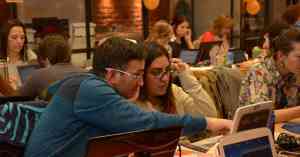
Understanding YLTE: Importance of English Test for Young Learners

Top 10 Errors in English Proficiency Tests & How to Avoid Them

Challenges in English Proficiency Tests for Language Learners
FLUOROSCOPE LANGUAGE CALCULATOR
How long will it take you to improve your English?
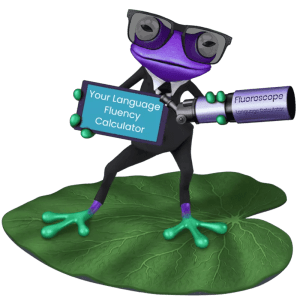
Design, write and practice your own phrases or learn 3,500+ premade English phrases with Lilly!
© 2023 LillyPad.Ai

- Travel Vocabulary

Table of Contents
This page explores travel vocabulary in English. You will learn all the essential travel-related words you need to know. We also offer an online flashcard game to practice and test your knowledge of travel vocabulary.
Travel Vocabulary: Means of Transport
I go by…, i go on… means of transport.
The following traveling vocabulary table is mainly about phrases and expressions used to talk about means of travel:
- I go by bus to work every day.
- I go by train when I travel to the city.
- I walk (go on foot) to the local market.
- I ride (go by bicycle) on weekends for exercise.
- I go on a cruise during my summer vacation.
- Christoph Columbus sailed across the Atlantic.
Useful Travel Expressions
General travel vocabulary.
- Public transportation (British: public transport) is a system of vehicles such as buses and trains that operate at regular times on fixed routes and are used by the public.
- The road / the highway / the port / the airport
- “Where’s the information desk, please?”
- “It’s exhausting commuting from Brighton to London every day.”
- “I love going on long journeys.”
- “We journeyed south.”
At the Airport
- “Show me your passport, please!”
- “I’m here on business/vacation.”
- “I’m traveling alone / with my family.”
- Customs is the place at a port, airport, or border where travelers’ bags are looked at to find out if any goods are being carried illegally.
- “Anything to declare?”
- “No, there’s nothing to declare / Nothing to declare.”
- “You’ve got a lot of baggage! Why don’t you use the baggage cart?”
- “How much is a one-way ticket (British: usually single) to New York?”
- Round trip: If you make a round trip, you go on a journey and return to where you started from.
- “I’ll never forget my first flight.”
- “Flight 474 to Buenos Aires is now boarding at gate 9.”
- First class / Business class / Economy class
- “What time does the plane for… take off / land?”
- “A representative from the tour company will meet you at the check-in.”
At the Train Station
- “How much is a ticket to…?”
- Direct / transfer train
- “Is there a reduced fare for children / large families?”
- “Where is the station?”
- “Where can we buy tickets?”
- “What time will the train leave?”
- “Where is platform number …?”
By Ship / Boat
- “We’re going across to France by/on the ferry.”
- A cruise is a journey on a large ship for pleasure, during which you visit several places.
By Bus/Coach
- “Where is the bus station, please?”
- “When does the bus leave for…?”
- “How many stops before…?”
- A bus with/without air-conditioner
- “Where is the parking lot, please?”
- “Where can I park my car?”
- “Can I park my car here?”
- “I would like to rent a car for…. days/weeks.”
- “The car costs £30 a day to rent, but you get unlimited mileage (= no charge for the miles traveled).”
- “I had a breakdown (= my car stopped working) in the middle of the road.”
- “The car’s still at the garage getting fixed.”
- “Where can I find a garage to repair my car?”
- “I’ll need to take out extra car insurance for another driver.”
Means of Transport Flashcards Game
Learn English for traveling with fun with the following game:
Related Pages:
- Means of transport/travel
- What to do during the summer holiday?


- Our Friends
- Monthly Plans
- About Kansei
Speak Like a Pro: Essential Travel English Vocabulary Revealed
Essential Vocabulary for Travelers
For travelers, especially those aiming for careers in tourism and hospitality or engaging with international tourists, mastering “travel English vocabulary” is crucial. This section provides essential terms and expressions for navigating, transportation, and accommodation, which are fundamental for travel in English-speaking regions.
Navigating Directions
Navigating new places requires a clear understanding of directional vocabulary. Common travel English vocabulary for giving directions includes terms like “turn right,” “go straight,” “take the first left,” “cross the street,” and “be on your left” ( Wall Street English ). Additionally, knowing how to ask questions such as “how far is it?” and “is it within walking distance?” is essential. Familiarize yourself with terms like “map,” “GPS,” “landmark,” “street,” and “intersection” for effective communication and navigation. Here are some examples:
For more on navigating in English, explore our resources on english for travel .
Transportation Terminology
Understanding the vocabulary related to transportation is vital for getting around in English-speaking areas. Key terms include “subway,” “bus stop,” “taxi,” “car rental,” “train station,” and “airport” ( Wall Street English ). Being familiar with these words can greatly facilitate your travel experience and help you in advising others. Here’s a table with some common transportation terms:
For additional vocabulary, check out our section on english for public transportation .
Accommodation and Reservations
When it comes to accommodation, knowing the right vocabulary is key to ensuring a comfortable stay. Essential terms include “hotel,” “reservation,” “check-in,” “check-out,” “concierge,” and “room service” ( Go Natural English ). These terms are crucial for making and managing lodging arrangements. Learn and practice the following:
For a deeper dive into this subject, consider our guides on english for hotel check-in and english for booking accommodation .
Understanding and using these essential travel English terms and phrases will enhance communication skills and confidence when dealing with tourists or traveling in English-speaking countries. Continue to expand your knowledge with our comprehensive guides, including essential travel english and travel english phrases .
Communicating at Destinations
Whether dining, shopping, or visiting iconic sites, travelers can greatly enhance their experiences by familiarizing themselves with key English terms and phrases. This section provides essential travel English vocabulary designed to assist young adults in the Asia-Pacific region who are pursuing careers in tourism, hospitality, or simply wishing to interact more confidently with international tourists.
Dining and Shopping
When it comes to dining out or shopping, knowing the right words can make all the difference. Vocabulary for places like “restaurant,” “café,” “bistro,” “mall,” “boutique,” and “marketplace” are commonly used and can aid in both finding a location and asking for recommendations.
For more detailed vocabulary and phrases tailored to dining and shopping situations, explore our travel English phrases and travel English expressions sections.
Attractions and Landmarks
Visiting attractions and landmarks is a major part of travel, and being equipped with the right vocabulary can help travelers ask for directions, purchase tickets, and share their experiences. Essential words include “museum,” “gallery,” “park,” “historical site,” “monument,” and “tourist information.”
For additional resources on discussing and describing attractions, refer to our english for sightseeing and travel english conversation pages.
Understanding these essential terms and phrases can enrich the travel experience, making it easier to navigate destinations and engage with local cultures. By expanding their travel English vocabulary, individuals can also improve their professional prospects in the fields of tourism and hospitality. For more comprehensive learning, young adults are encouraged to delve into our english for international students and basic travel english resources.
Handling Travel Documentation
Navigating through airports and dealing with travel documentation is a significant part of the travel experience. Mastery of related vocabulary is essential for smooth transitions from one point to the next.
Airport and Customs Vocabulary
The airport is where your journey begins and ends, and understanding the terminology used here is crucial. At the T.S.A. checkpoint , you’ll be asked to present your boarding pass and a form of identification, such as a driver’s license. Be prepared to remove your coat, shoes, and belt for security screening.
Upon arrival at your destination, you might be required to go through customs. Here are some key terms and phrases that may be used:
- Declare : To officially inform customs about any items you’re bringing into the country that may be subject to taxes.
- Duty-free : Items that are exempt from taxation.
- Visa : A permit to enter and stay in a country for a specific period.
- Immigration : The checkpoint where your travel documents and visas are reviewed.
- Customs form : A document required by customs, declaring any items of note.
- Prohibited items : Goods that are not allowed to enter the country.
It’s important to declare any items that require it, as failure to do so can lead to fines or other penalties. For a comprehensive list of vocabulary related to travel documents , visit our dedicated page.
Managing Luggage and Belongings
Managing your luggage is an essential skill in travel. Whether it’s carry-on or checked, knowing how to communicate about your belongings will make your life easier. Here’s some vocabulary that can help:
- Carry-on luggage : A small piece of luggage that you can take with you on the plane.
- Checked luggage : Larger luggage that is stored in the plane’s cargo hold.
- Baggage claim : The area where you collect your checked luggage after a flight.
- Overhead bin : Storage compartments above airplane seats for carry-on items.
- Personal item : A smaller bag such as a purse or laptop bag that can fit under the seat in front of you.
Remember to pack essentials in your carry-on, like a book, a reusable water bottle, and snacks, to make your flight more enjoyable. For more tips on managing luggage, explore travel english expressions that can be helpful when discussing your belongings with airport staff.
With these terms and phrases, individuals preparing for careers in tourism, hospitality, or those simply looking to engage more with international tourists can navigate travel documentation and luggage management with confidence. For additional resources and practice, our sections on english for travel and english for international students are great places to start.
Describing Travel Experiences
When recounting their adventures, travelers often seek to capture the essence of their experiences with vivid language. Having a robust travel English vocabulary is essential for conveying the excitement and wonder of their journeys. This section will explore powerful adjectives for characterizing travel experiences and offer guidance on articulating stories and impressions.
Adjectives for Journeys and Destinations
To truly depict the richness of travel experiences, one must go beyond basic descriptors like “nice” or “good.” The English language offers a plethora of advanced adjectives that can bring stories to life. English Lesson Via Skype provides a list of 34 advanced adjectives, including “exhilarating,” “awe-inspiring,” “riveting,” “insightful,” and “breathtaking.” These words are sorted into categories to describe various aspects of travel, such as the journey, accommodations, attractions, and the emotions they evoke.
Here’s a sampling of adjectives from the list, categorized to help travelers accurately describe their experiences:
Sharing Stories and Impressions
When sharing travel narratives, whether verbally or in writing, incorporating a variety of descriptive adjectives can provide a richer and more nuanced representation of one’s adventures. It enables individuals to communicate their unique experiences more effectively and to convey their emotions and impressions in a way that is captivating and expressive.
For example, instead of simply stating, “The Grand Canyon was beautiful,” one might say, “The Grand Canyon was an awe-inspiring spectacle, its vastness rendering me utterly speechless.”
Using advanced adjectives to describe travel experiences allows individuals to paint a more vivid picture for their audience, making their storytelling more engaging. For those looking to improve their travel English, resources like english for travel , travel english phrases , and travel english expressions can be invaluable.
By expanding one’s vocabulary and practicing the articulation of travel stories, young adults in the Asia-Pacific region interested in tourism or hospitality can engage more effectively with international tourists. Not only does this enhance personal expression, but it also enriches the listener’s understanding and appreciation of the recounted experiences. For those preparing to study abroad or enter the realm of global tourism, english for international students and english for study abroad offer targeted language skills development to navigate and excel in international environments.
Practical Phrases for Interactions
Interacting with others while traveling not only helps in navigating new places but also enriches the travel experience. For non-native English speakers, knowing the right phrases is essential for clear communication. Below are practical phrases for asking for directions and engaging with locals, key components in travel english vocabulary .
Asking for Directions
When lost or unsure about how to get to a particular location, the ability to ask for directions in English becomes vital. The simplest and most straightforward way to do this is by using the phrase “Where is _ ?” This can be adapted for various scenarios, whether looking for a restroom or a famous restaurant like Katz’s Delicatessen ( LearnTalk ).
Other common phrases for inquiring about directions include:
- “Could you point me to the nearest _ ?”
- “How do I get to _ ?”
- “Is the _ far from here?”
- “Can you show me on the map where we are?”
Here’s a quick reference table with phrases useful for travelers:
These questions are not only practical but also provide a chance to engage with locals , offering a window into the local culture and possibly some insider tips on the best spots to visit.
Engaging with Locals
Engaging with locals is a delightful part of travel that opens doors to authentic experiences and learning opportunities. To start a conversation, it is polite to greet with a simple “Excuse me,” “Hi,” or “Hello” before proceeding with questions or requests ( LearnTalk ).
Here are several phrases that can help when engaging with locals:
- “Excuse me, do you speak English?”
- “I’m from _ , where are you from?”
- “Can you recommend any good places to eat around here?”
- “What’s this area known for?”
- “I’m trying to find _ , do you know where it is?”
Remember, engaging with locals is not just about getting information; it’s about sharing an exchange that can enrich your travel experience. Be open, respectful, and genuinely interested in the conversation, and you’ll find that most people are happy to assist and share their knowledge.
Whether asking for directions or striking up a conversation, these practical phrases are stepping stones to building confidence in travel english situations . They’re essential tools that empower travelers to navigate, discover, and connect across different cultures and environments.
Understanding Travel-Related Terms
In the world of wanderlust, terms like “travel,” “trip,” “journey,” “tour,” and “voyage” are often used interchangeably. However, each term has its own distinct meaning that can enrich our understanding and expression of travel experiences. This section clarifies these terms, providing a clear distinction to enhance your travel english vocabulary .
Differentiating Travel, Trip, and Journey
The terms “travel,” “trip,” and “journey” might seem synonymous but hold subtle differences in their usage:
- Travel can be used as both a verb and a noun. As a verb, it refers to the act of moving from one place to another, such as “He travels frequently for work.” As a noun, it denotes the general concept of movement, as in “Travel the way you wish to go” ( Keely Algar Languages ).
- Trip is a noun that usually refers to a short journey or one that is relatively routine, often for a specific purpose and with a return to the starting point planned, like “a business trip” or “a day trip.”
- Journey suggests a longer experience, one that is often significant and transformative. It might not have a clear or final destination, as in “a journey of self-discovery.”
By understanding the nuances of these terms, language learners can more accurately convey their travel experiences and intentions, whether they’re discussing a brief excursion or an extended adventure.
Phrasal Verbs in Travel Contexts
Phrasal verbs are an integral part of conversing in English, especially in travel scenarios. Here are some common phrasal verbs related to travel:
- Check in – to register upon arrival, such as at an airport or hotel.
- Set off – to start a journey.
- Look around – to explore or visit a place casually.
- Come across – to find or encounter something by chance.
Understanding and using these phrasal verbs correctly can enhance communication and help in navigating various travel situations . For instance, telling a story about how you “came across a quaint café while looking around the city” can add color and detail to your narrative.
Learners aiming to master travel english should immerse themselves in the language by exploring resources like english for travel podcasts or english for travel videos . Engaging with these materials can provide context to the vocabulary and phrases learned, making the language come alive and aiding retention.
Incorporating the correct travel-related terms and phrasal verbs into your vocabulary can not only aid in clear communication but also enrich your storytelling, making it more vivid and engaging for your audience. Whether you’re engaging with international tourists or studying abroad, a robust travel english lexicon is an essential tool for success in the global community.
Start Your Language Journey with Kansei
Discover the smarter way to language fluency with Kansei's dynamic, interactive dialogues, and personalized feedback. From immersive roleplay scenarios to companion-based learning, we make mastering a new language engaging, effective, and enjoyable.
Begin with plans as low as $4.99 . Explore our affordable subscriptions and unlock your potential today. With Kansei, every conversation brings you one step closer to fluency.
Travel Vocabulary for English-Language Learners
With a follow-up quiz for extra practice
- Basic Conversations for English Language Learners
- Pronunciation & Conversation
- Writing Skills
- Reading Comprehension
- Business English
- Resources for Teachers
- TESOL Diploma, Trinity College London
- M.A., Music Performance, Cologne University of Music
- B.A., Vocal Performance, Eastman School of Music
The travel-related words below are the most important terms to know when talking about travel or taking vacations . Words are categorized into different sections depending on the type of travel. You'll find example sentences for each word to help provide context for learning, as well as a short quiz at the end to test your knowledge.
Air Travel Vocabulary and Sample Sentences
Airport : I went to the airport to catch a flight to San Francisco. Check in : Make sure to get to the airport two hours early to check in. Fly : I like to fly on the same airline to get mileage points. Land : The airplane will land in two hours. Landing : The landing took place during a storm. It was very scary! Plane : The plane is packed with 300 passengers. Take off : The airplane is scheduled to take off at 3:30 p.m.
Vacation Travel Vocabulary and Sample Sentences
Camp : Do you like to camp in the woods? Destination : What is your final destination? Excursion : I'd like to take an excursion to the wine country while we're in Tuscany. Go camping : Let's go to the beach and go camping next weekend. Go sightseeing : Did you go sightseeing while you were in France? Hostel : Staying in a youth hostel is a great way to save money on vacation. Hotel : I'll book a hotel for two nights. Journey : The journey will take four weeks and we'll visit four countries. Luggage : Can you carry the luggage upstairs? Motel : We stayed in a convenient motel on our way to Chicago. Package holiday : I prefer to buy package holidays , so I don't have to worry about anything. Passenger : The passenger felt ill during the voyage. Route : Our route will take us through Germany and on to Poland. Sightseeing : The sightseeing in this town is rather boring. Let's go shopping . Suitcase : Let me unpack my suitcase and then we can go swimming. Tour : Peter went on a tour of the vineyard. Tourism : Tourism is becoming an important industry in almost every country. Tourist : Every May, many tourists from around the world come to see the flower festival. Travel : Travel is one of his favorite free time activities. Travel agent : The travel agent found us a great deal. Trip : The trip to New York was lovely and interesting. Vacation : I'd love to take a nice long vacation on the beach.
Overland Travel Vocabulary and Sample Sentences
Bicycle : One of the best ways to see the countryside is to ride a bicycle. Bike : We rode a bike from shop to shop. Bus : You can catch a bus for Seattle at the bus station. Bus station : The bus station is three blocks from here. Car : You might want to rent a car when you go on vacation. Lane : Make sure to get into the left lane when you want to pass. Motorcycle : Riding a motorcycle can be fun and exciting, but it's also dangerous. Freeway : We'll have to take the freeway to Los Angeles. Highway : The highway between the two cities is quite lovely. Rail : Have you ever traveled by rail? Go by rail : Going by rail offers the opportunity to get up and walk around as you travel. Railway : The railway station is down this street. Road: There are three roads to Denver. Main road : Take the main road into town and turn left at 5th Street. Taxi : I got in a taxi and went to the train station. Traffic : There's a lot of traffic today on the road! Train : I like riding on trains. It's a very relaxing way to travel. Tube : You can take the tube in London. Underground : You can take the underground in many cities throughout Europe. Subway : You can take the subway in New York.
Sea / Ocean Travel Vocabulary and Sample Sentences
Boat: Have you ever piloted a boat? Cruise: We will stop at three destinations during our cruise through the Mediterranean. Cruise ship: It's the most elegant cruise ship in the world! Ferry: Ferries allow passengers to take their cars with them to their destination. Ocean: The Atlantic Ocean takes four days to cross. Port: There are all kinds of commercial ships in the port. Sailboat: The sailboat requires nothing but the wind. Sea: The sea is very calm today. Set sail: We set sail for the exotic island. Ship: Have you ever been a passenger on a ship? Voyage: The voyage to the Bahamas took three days.
Travel Vocabulary Quiz
Test your knowledge by taking this short quiz.
- destination
- your mindset
- conversation
- have a beer
- all answers are correct
- all the answers are correct
- Family-Related Vocabulary for English-Language Learners
- Vocabulary Quiz - Travel
- Reporting Verbs for English Language Learners
- Sports Vocabulary for English Learners
- Travel Vocabulary
- Hobbies Vocabulary for English Students
- Media Vocabulary for English Learners
- Education Vocabulary for English Learners
- Spanish Vocabulary for Planes and Airports
- Indirect Speech in the English Language
- Dating and Marriage Vocabulary in English
- Vocabulary Lesson: French for Travelers
- Advertising Vocabulary for English Learners
- German for Travelers: The Basic Travel Phrasebook
- How Do You Rate as an Expert of the English Language?
- Driver Education Key Vocabulary for English Learners
- Student Login:

Adventure Travel in English to Boost Your Vocabulary
May 10, 2017 | Advanced Vocabulary

I’ll be honest with you: I had a completely different lesson planned for you this week. And it was a good one! (But don’t worry! You’ll still get that lesson next week.)
However, at the last minute, I decided to change my plan for this week’s Confident English lesson. Here’s why:
This past week, I traveled to the Caucasus region. The trip was amazing and full of adventure. Plus, I got to meet one of my students face-to-face. It was like meeting a friend after a long time and I feel very lucky to have had the opportunity to meet her.
Also, last year I shared a lesson with you on common vocabulary we use for to Tell Travel Stories in English and it has been one of my most popular lessons. So, yesterday I thought, “ I should do another travel story lesson! ”
And that’s exactly what I’ve done.
Today’s lesson is full of common vocabulary, phrasal verbs, and idioms that we use for telling travel stories, including bad weather and even a car problem!
Take a few minutes to read the story, review the expressions, and then check out my challenge for you.
An Adventure Travel Story with Advanced English Vocabulary
After checking in and going through security, we had some time to kill so we wandered around the airport and spent a little time reading. I have to say, one of the best things about traveling is all the extra time you have on the flight to read. I love any excuse to get lost in a book and if you want a good recommendation for a book in English, try The Nightingale by Kristin Hannah.
It took two flights for us to reach our final destination, with a 3-hour layover in-between. Thankfully, a cup of coffee and some excellent people watching made the layover go quickly. It was an intersection of east meets west; Europe meets Asia. A wild mix of languages, cultural dress, hairstyles, and fashion statements .
After our final landing, we took public transport into the city, checked into the hotel and hurried to explore the city by foot . We were in a region of the world that was completely new to us: with every step the sights, sounds, and smells were unfamiliar and exciting.
After a couple days in the city visiting museums, important monuments, and enjoying the local cuisine , we headed off into the countryside . Our goal was to see as much of the country as possible in our short amount of time.
A highlight of the trip was our visit to a remote area of the country. We had to take an off-road vehicle for over an hour to reach an ancient monastery from the 6 th century, which is still used today.
But, in the middle of our road trip, the car got a flat tire .
Even worse: we heard a loud clap of thunder followed immediately by lightning not so far in the distance, so we knew it would start raining soon – we were in a race against time to get the tire changed.
Luckily the car had all the necessary equipment: a jack, a wrench and a spare tire (which was thankfully in good condition). On the side of the road, we changed the tire and rushed to get back on the road just as the first rain drops started to fall.
When we finally reached the monastery, we hiked up to the top of a small mountain from where we could view a massive valley below and explore some of the caves in the monastery complex. It felt like living inside a history book. Then we watched the beginning of sunset before we started our way back down the mountain.
All in all, it was definitely a peak travel experience : a bit of adventure, a lot of beauty, and some new food discoveries all in one.
to check in
[phrasal verb]: to register your arrival at an airport for travel or at a hotel
time to kill
[idiom]: to have time to occupy yourself with an activity that will make time pass more quickly
[noun]: a trip by or in an airplane
[noun]: a stopover; the stop made in an airport between flights
people-watching
[noun]: casually watching other people as they pass by or move around you; an activity often used to kill time
a fashion statement
[noun]: clothes or style of dress that one wears to attract attention; clothes used to show other’s the type of person one is
[idiom]: to go somewhere or travel by walking
local cuisine
[noun]: the style of cooking, recipes, or food that represents a local culture or tradition
to head off
[phrasal verb]: in this context, to head off means to start or to change direction
countryside
[noun]: a rural area of a country
[noun]: in this context, a highlight means an enjoyable or memorable events, experience, scene, etc.
[adjective]: a remote area is a far away place; secluded or not near well-populated areas
[adjective]: built or designed to be used off of public roads, usually unpaved roads
[noun]: a place where a community of monks live
[noun]: a tire that has lost all of its air
clap of thunder
[noun]: a very loud, sharp sound of thunder
race against time
[noun]: an attempt to do something in a short amount of time or to do something quickly; to hurry to beat a deadline
[noun]: a portable tool to lift heavy objects off the ground (a jack is used to lift a car off the ground so one can change the wheel)
[noun]: a tool used to grip and turn (or twist) a nut, bolt, etc.
[noun]: spare means extra; a spare tire is an extra tire
get back on
[phrasal verb]: in this context, it means to return to
[verb]: to walk a long distance, particularly in rural areas for pleasure, military training, or exercise.
massive valley
massive [adjective]: large, vast, wide
valley [noun]: a long, narrow area that is surrounded by hills or mountains
peak travel experience
[idiom]: an optimal trip; a trip that meets or exceeds your expectations.
Now, what about you? What is your peak travel experience?
Review the vocabulary you’ve learned in this lesson and tell me your best travel story. Where did you go? Who were you with? How did you get there? What did you do and see?
I’d love to hear about it. Take a few minutes to try some new expressions in English. It’s the best way to add new language to your active vocabulary!
I look forward to reading your story,
Get the Confidence to Say What You Want in English
Follow my 3-step solution to speak English with clarity, fluency, and freedom so you can say what you want with confidence.
You'll also get my Confident English lessons delivered by email every Wednesday and occasional information about available courses. You can unsubscribe any time.
More Like This

#315: Think in English and Speak Faster in Conversations (How to Stop Translating in Your Head)
If you’ve ever struggled to translate your thoughts quickly, learn to transform how you think in English so you can speak faster in conversations.

#314: Master English Networking: How to Network with Coffee Chats
English speakers love creating new words, and we do it regularly with word blends such as glamping, hangry, bromance, and more. Discover current popular word blends in English.

#313: How to Understand English TV Without Subtitles

#312: Word Blends in Modern English Vocabulary | Hangry, Kenergy, Glamping
![travel experiences vocabulary Positive English Adjectives to Describe People [+ Free Worksheet]](https://www.speakconfidentenglish.com/wp-content/uploads/2017/06/Positive-English-Adjectives-to-Describe-People-Advanced-Vocabulary-400x250.png)
Positive English Adjectives to Describe People [+ Free Worksheet]
Want to use more than ‘nice’ or ‘kind’ to describe people in English? Add these personality adjectives to your vocabulary for precise, powerful descriptions.

#311: English Small Talk with Your Boss | Build Rapport and Credibility
Master the art of English small talk with your boss to significantly boost your rapport and credibility with senior leaders.
© Copyright 2014-2024 Speak Confident English | Privacy Policy | Terms & Disclaimer | Online Class Policies
Hi dear Annemaria. It is my pleasure to know an awesome English teacher. I have to confess that your videos are really useful and I enjoy and learn a lot from them. By the way I couldn’t find the video about An Adventure Travel Story with Advanced English Vocabulary. Would you please guide me to find it. Best Wishes.
Dear Anne, this is my first time to write something when I were joining your blog since 3 months ago. Your blog was helpful for me. Now, I try to write a story for traveling. I hope you read it and could correct it because I know there are many mistake. A week ago, I just came back from 2 weeks voyage to be a better man. The journey was full of happiness. It was my second time going to overseas. I went to Saudi with my mom. When I arrived at Jeddah, I met with group from Indonesia and … Read more »
It’s great to have you here, Amin.
Thank you for telling your travel story. And I’m very glad to know you find my lessons useful to you.
It sounds like an unforgettable experience for you and I’m glad it was a positive one. Best, Annemarie
Couple of years ago, I visited New Mexico in the US with my colleagues on a Christmas long weekend. We were all excited to see and experience snow and hot air balloon ride for the very first time. We rented a car and headed off to a city near to our final destination around noon on a Friday, we planned to reach there by the mid night (it was around 12 hours road journey), but it was such a terrific journey and we actually reached the destination at 8 am on the next day. Our snow seeing experience started well … Read more »
Wow, now that is an adventure, Hari. Thank you for sharing.
I’m sure it was very scary to experience skidding on the road the first time (and experiencing snow, too). I’m glad that in the end everyone was okay and had a great time.
I hope you enjoyed the cuisine in the New Mexico. I think it’s delicious!
Best, Annemarie
3 years ago,I went to Turkey with my family.It took two flights for us to reach our final destination,with about 6 hours layover in between.So,we have a lo;..mt of time to kill.At the first airport,I spent my free time in reading a book.At the other airport,shopping and some people watching made the layover go quickly.When we arrived to our destination,we took a taxi to go to our hotel. The city was in a coastal area.So,the hotel had a view on the sea.There was a swimming pool too.It was an amazing hotel.We stayed there a week.So, I will mention the most … Read more »
Hello Shavin, Thank you for sharing your story! It was great to see you use so much vocabulary from the lesson. And I’m envious of your time in Turkey. I visited Istanbul a few years ago and loved it! I’d like to return so I can see more of the country and enjoy more of the cuisine too. 🙂
Great use of: to kill some time layover remote area local cuisine peak travel experience
It sounds like you also had a bit of adventure with the boat. 🙂 Thanks again for sharing, Annemarie
FLUENCY SCHOOL: SAVE THE DATE 🗓️ Next Course Dates: September 27 - November 22 Want access to early registration? Join my exclusive waitlist.
Pin It on Pinterest
- 📝 VOCABULARY
- 🚀 GAMES/ACTIVITIES
Travel Words to Learn in English

Travelling is going from a place to a distant place. Movement of people is considered as travel. People travel by many vehicles such as car, bus, plane, train or ship. These are called means of transport .
⬤ Pictures of travel vocabulary with pronunciations
Here is a list of travel vocabulary in English with pictures. You can listen to the pronunciation when you click on an image. The browser you are using does not support HTML5 audio playback. Sorry.
⬤ Word list of travel vocabulary in English
- destination
- travel agent
- ticket office
- information desk
- flight attendant
⬤ Air travel vocabulary
- boarding pass
- business class
- economy class
- first-class
- emergency exits
SIMILAR PAGES: ❯❯ Holiday vocabulary ❯❯ City life vocabulary ❯❯ Transportation vocabulary ❯❯ Business English vocabulary
⬤ Flashcards exercise about travelling
Learn travel vocabulary with flashcards exercise below. There are flashcards about travel vocabulary. Guess it and open the card to see the answer.
⬤ Flip the card game about travelling
Click on a card to open it. Then you will see a random word about travelling. Guess the meaning of it in your own language.
⬤ Images of travel vocabulary to download
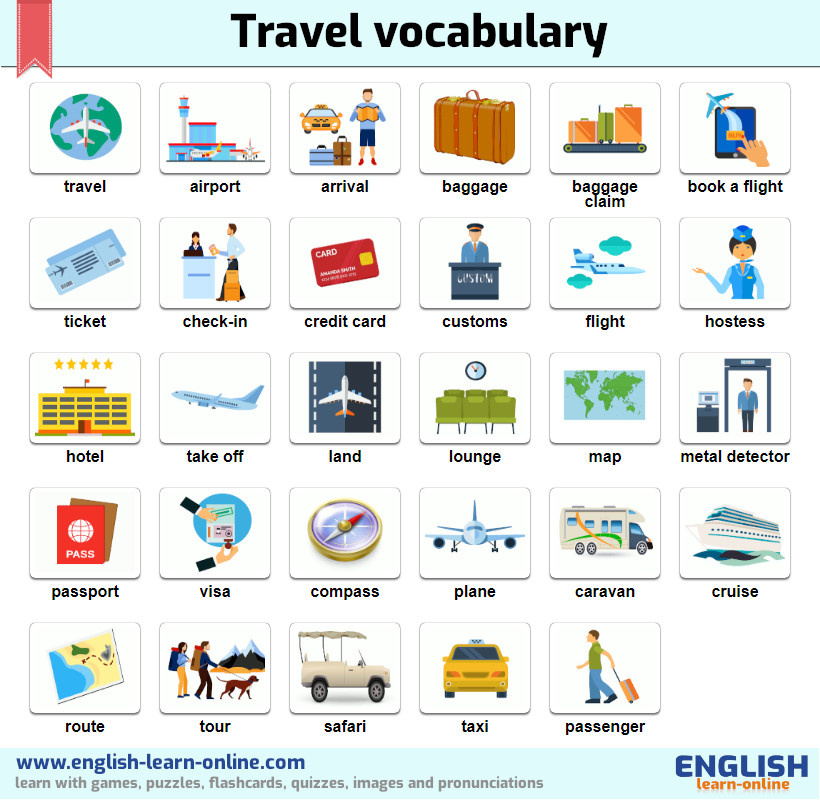
⬤ Picture quiz about travel vocabulary
Let’s check your travel vocabulary with images. Select the correct option according to the given picture. For every correct answer you get 10 points.
⬤ Listening test
This is a free listening test about travelling. First listen to the audio about travel. Then select the corresponding picture from the list.
⬤ Writing test about travel
Below is a vocabulary writing test about travel. Look at the image and write the name of the picture into the input box.
START
⬤ Spelling test about travel
Below is a vocabulary listening and spelling test about travel. Listen to the audio and then write what you hear into the input box. For every correct answer you get points.
⬤ Worksheets for travel vocabulary to download
Related pages, memory card game for travel, word scramble game for travel related words, word search puzzle for travel, make words game for travel expressions, wetman game for travel, accessories vocabulary 👓 exercises pictures audio, body parts in english 👨 with games and listed images, classroom objects vocabulary in english 📕 with games, clothes vocabulary in english 👕 learn with images and flashcards, colour names in english 🎈 with tests and images, computer parts (hardware) vocabulary: pictures audio, verb to be (am, is, are) – with examples and online exercises, modal “can” – with explanations exercises and activities, present continuous tense – with usage examples and pictures, simple present tense (do-does) – with usage, pictures and example sentences.
© www.english-learn-online.com All right reserved You can write us any mistakes or read our about page or see our privacy policy .
Vocabulary for Travelers: Words and Phrases on the Go
Traveling opens up new horizons and presents opportunities for enriching and enlightening experiences. To make the most out of these experiences, having a basic understanding of travel-related vocabulary can prove to be incredibly beneficial. This article is designed to enhance your travel vocabulary, making it easier for you to communicate while on the go.
Table of Contents
Basic travel terms, accommodation vocabulary, food and dining vocabulary, vocabulary for sightseeing, travel safety vocabulary, vocabulary for shopping and souvenirs, sample conversation: discussing travel plans and vocabulary, 10 frequently asked questions related to vocabulary for travelers.
If you are searching for an effective English language vocabulary builder, try Word Power Made Easy: The Complete Handbook for Building a Superior Vocabulary (Amazon Link) . This time-tested classic has helped millions achieve mastery of English and improve their communication skills in business, the classroom, and in life.
In this section, we cover some fundamental travel-related words and phrases that you might use in a variety of travel situations.
Finding the perfect place to rest your head is crucial. Here are some words and phrases related to accommodations.
Trying new foods is one of the most exciting aspects of travel. Here are some words to help you navigate local dining experiences.
Here are some terms that might come in handy when visiting tourist spots or attractions.
Safety is a major concern when traveling. Here are some words related to travel safety.
Last but not least, shopping is an integral part of travel for many. Here are some phrases you might need while shopping abroad.
To elevate your vocabulary in just 30 days, I recommend to my students an informative, fun, and accessible guide to utilizing powerful language. Millions of individuals have enhanced their academics, job skills, and confidence by dedicating just fifteen minutes daily to the exercises and tests of 30 Days to a More Powerful Vocabulary (Amazon Link) , a top-selling. It offers step-by-step methods to bolster language prowess, discover compelling words, and daily vocabulary enhancement with pronunciation guidance.
Situation: At a cafe, Maya and Alex are planning their backpacking trip across Europe.
Maya: Hey Alex! I’ve been researching some itineraries for our trip. It seems like starting in Lisbon and then making our way east could be a great route.
Alex: That sounds exciting! I’ve heard that the hostels in Prague are pretty affordable and centrally located. We should definitely check them out.
Maya: Absolutely. I’ve also been brushing up on some essential phrases in various languages. You know, the basics like “hello,” “thank you,” and “how much?”
Alex: That’s a good idea. Being able to ask for directions or understand public transport schedules can be a lifesaver. Plus, the locals appreciate it when you make an effort with their language.
Maya: Definitely! Oh, and I found this app that helps with currency conversion . It’ll come in handy when we’re budgeting or shopping.
Alex: Perfect! With all this prep, our journey is set to be smooth and memorable. Can’t wait!
This article aimed to provide you with an extensive travel vocabulary to enrich your journey and ease your communication while traveling. Familiarizing yourself with these words and phrases can greatly enhance your travel experience and make your journeys more enjoyable and efficient. Happy travels!
1. What are “itineraries” in the context of traveling?
An itinerary refers to a planned route or journey, detailing the places one intends to visit and the sequence in which they’ll be visited.
2. What does “hostel” mean?
A hostel is a budget-friendly accommodation option, often with shared rooms and communal facilities, popular among backpackers and solo travelers.
3. Why are “essential phrases” important for travelers?
Knowing essential phrases in the local language can help travelers navigate unfamiliar places, interact with locals, and handle emergencies.
4. How are “directions” typically given in foreign countries?
Directions can be given using landmarks, street names, or using terms like “left,” “right,” “straight ahead,” and “around the corner.”
5. What does “public transport” include?
Public transport refers to transportation services available to the general public, including buses, trains, subways, and trams.
6. Why is “currency conversion” important for travelers?
Currency conversion helps travelers understand the value of foreign currency in terms of their home currency, aiding in budgeting and transactions.
7. What are “landmarks” in a city?
Landmarks are recognizable and historically significant structures or places within a city, often used as reference points.
8. How can travelers avoid “tourist traps”?
By researching destinations in advance, seeking local recommendations, and being wary of overly commercialized areas, travelers can avoid places that are overly expensive or inauthentic.
9. What’s the difference between a “guided tour” and “self-guided tour”?
A guided tour is led by a local expert or guide, providing insights and information. In contrast, a self-guided tour is where travelers explore on their own, often using maps or apps.
10. Why is understanding “local customs” important?
Being aware of local customs ensures travelers are respectful, avoids unintentional offenses, and enriches the travel experience by immersing in the local culture.
Related Posts
Goodnight vs. good night: which one is correct, common adjectives to describe someone in english, a guide to collocations: combine words to enrich vocabulary, vocabulary for academic success: key words and phrases, niaj a a khan.
Niaj A A Khan is an ESL Instructor with over 8 years of experience in teaching & developing resources at different universities and institutes. Mr. Khan is also a passionate writer working on his first book, "Learn English at Ease."
Leave a Comment
You must be logged in to post a comment.
📖 Join our community - for free! 📖

Advanced Adjectives To Describe Travel Experiences
- Post author: Harry
- Post last modified: 10/02/2024
- Post category: English Vocabulary
- Reading time: 8 mins read
Learn English adjectives to describe travel or travel experience. I will also give you the nouns that collocate with these adjectives.
Learning these adjectives will help you improve your vocabulary in English.
Listen to the podcast Speak Better English with Harry or watch it on YouTube at Learn English with Harry . englishclass101
List of adjective to talk about travel
Adjectives to describe travel experiences.
In this lesson, I have 10 adjectives for you that will help you describe your travel experience.
And because these adjectives are connected with travel or travel experiences, a lot of them will collocate with very similar words.
But at least they’ll give you a choice of words with which you can use them. I’ll try and give you some of those popular collocations.
give a gift of learning Offer up to 50% off
Great way to improve your English. Use code LOVE24

Meaning: leaves an impression, something lasting in your memory
- impressive hotel
- impressive reception area
- impressive setting
- impressive entrance
The main architecture is very, very old, but it is really clean and well maintained. The whole look of the hotel is impressive.
When you walk into the reception area, it is impressive. Everything about the entrance, and the setting is very impressive.
Meaning: something that gives you a lot of information, something that you didn’t know about
- remarkable gallery
- remarkable exhibition
- remarkable museum
- remarkable information
A remarkable gallery! I really didn’t know anything about him before I visited this gallery.
The information I got was really remarkable. I can use it in my lessons for my students in the history classes.
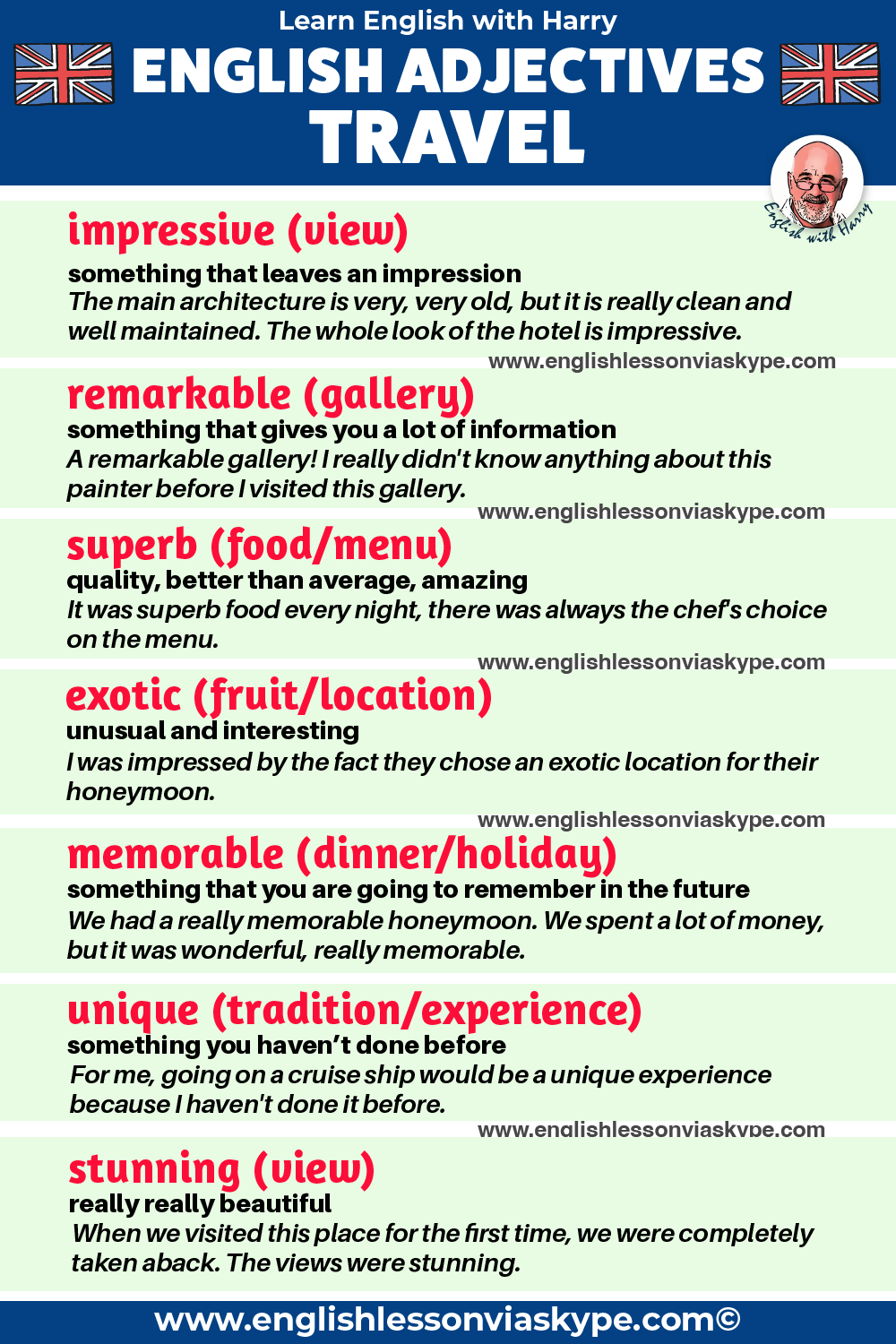
Meaning: quality, better than average, amazing
- superb food
- superb menu
- superb weather
- superb facilities
It was superb food every night, there was always the chef’s choice on the menu.
If I wanted one word to describe the holiday, it was superb.
- astonishing
Meaning: something that shocks us or surprises us in a positive way
- astonishing experience
- astonishing details
- astonishing transformation
Breakfast was excellent. It’s astonishing how much food you can eat when you’re on holiday.
The amount of food I ate was astonishing.
book your trial English Lesson
Meaning: really, really beautiful
- stunning view
- stunning hotel
- stunning museum
When we visited this place for the first time, we were completely taken aback. The views were stunning.
The museum was stunning. Last year it won an award for its architecture.
Meaning: impressive, exciting
- dramatic view
- dramatic journey
- dramatic events
When you look down, it’s quite dramatic. The water falls down several hundred metres, and then the spray comes back up again.
The plane journey turned out to be dramatic. There was a lot of turbulence.
Meaning: unusual and interesting
- exotic fruit
- exotic location
- exotic tree
- exotic animal
I’m not sure about their honeymoon. I think they picked some exotic location in the Caribbean.
Meaning: unusual or different, something you haven’t done before
- unique experience
- unique tradition
- unique exhibition
For me, going on a cruise ship would be a unique experience because I haven’t done it before.
The tea ceremony in Japan is a unique tradition only known to the Japanese.
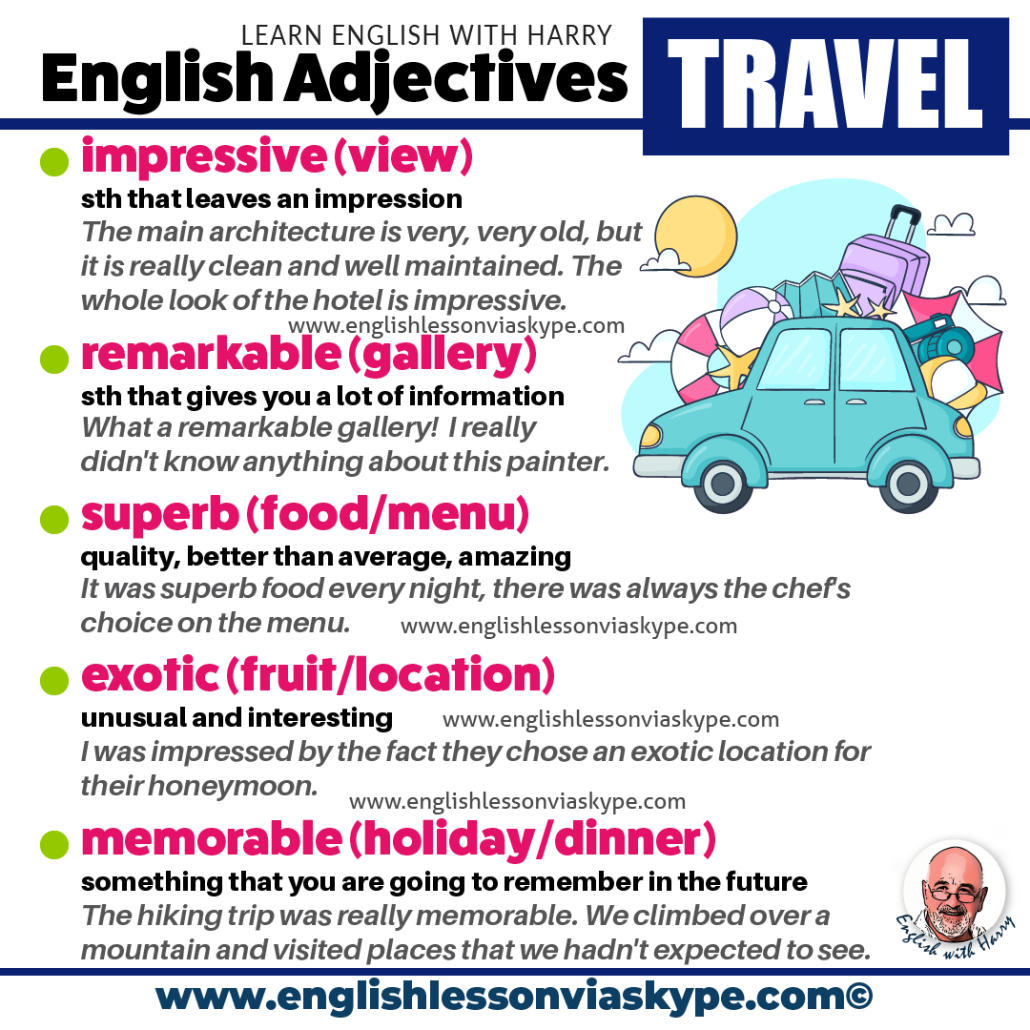
- breathtaking
Meaning: really beautiful, very impressive
- breathtaking view
- breathtaking drive
- breathtaking interior
- breathtaking scenery
When I got off the cable car at the top of the mountain, the views were breathtaking.
When walking around Niagara Falls, the scenery is simply breathtaking.
Meaning: something that you are going to remember in the future
- memorable holiday
- memorable honeymoon
- memorable dinner
- memorable occasion
We had a really memorable honeymoon. We spent a lot of money, but it was wonderful, really memorable.
The hiking trip was really memorable. We climbed over a mountain and visited places that we hadn’t expected to see.
Our dinner on Friday night was memorable. It was a clear night, and we could see different places.
Here are the advanced English adjectives to describe travel experiences. Let me give them to you one more time:
I hope, you enjoyed this lesson. Try to use them in your conversational English. If you need help, come back to me and I’ll give you more examples.
You can book advanced English lessons on Zoom or Skype at englishlessonviaskype.com
Thanks for listening. Join me again soon.
speak better English with Harry podcast- episode 395
More information.
For more information on English grammar rules, English collocations and English idioms, check out the links below:
10 Other ways to say GO AWAY in English
English verbs about COOKING
You can always study English advanced level at Learning English with the BBC and British Council Learn English .
20 Collocations with Problem
In this lesson you will learn 20 English collocations with problem. What are collocations? Why can’t you say he likes
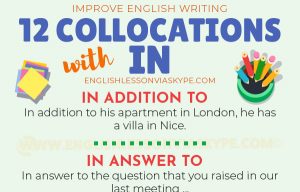
8 English Idioms with Hit
Here you will learn 8 English idioms with hit. Hit the ground running, hit the hay/sack, hit the nail on the head and more. Advanced English vocabulary.
enrol in a free course

- Phrasal Verbs + Grammar + Funny English Idioms
online english courses from €7.99
- free english mini course
- english grammar refresher
- 73 most common mistakes
- Advanced english workout 1
- advanced english workout 2
- advanced english workout 3
- job interview in english
- how to teach english online
follow me on social media
Advanced english learning course.
Improve English from intermediate to advanced level in my intensive English course.
55 online lessons + 6 online courses + direct contact with Harry
learn english with us
- zoom/skype english lessons prices
- our teachers
- english learning blog
- Odnoklassniki icon Odnoklassniki
- Facebook Messenger
- LiveJournal
How can I advance my English?
- Work With Us
- Blogging Resources
- Trip Planning

- Destinations
- Solo Travel
- Couples Travel
- Family Travel
- Expat Tips + Stories
- Expat Interview Series
- Inspiration + Musings
Get Inspired
42 inspiring & unusual travel words (besides wanderlust).
We’ve all tried to find words to describe a travel experience, and sometimes nothing seems to quite explain it right.
I love discovering new ways to express myself, and over the years I’ve slowly collected the below list of creative travel words that are either not commonly used in English or are from another language or are words that describe travel emotions we go through much better.

If you’re a bit of a Pinterest addict like me you might have heard some of these alternative words for travel before, but hopefully, some are new.
After all, we could all use some other words for wanderlust!
These are just a few of my favourite words associated with travel.
As someone who writes about travel all the time, I love finding new words for travel and to describe travel experiences.

Everyone knows wanderlust, but are there words for wanderlust in other languages, or even just another word for travel too?
I first wrote this post back in 2015 with just 24 new travel words that I had found over the course of the year while I was living abroad in Spain .
Since then I’ve come across many more so I’ve updated it to include the new ones!
Each travel word definition has been written in my own words, with a photo of my own, and examples from my own experiences.
I hope that you’re able to learn some new words for travel (that aren’t wanderlust but are other words for wanderlust!) and be a bit inspired by them like I have been!
The unusual travel words you need to know:
Resfeber (n), origin – swedish.
The tangled feelings of fear and excitement before a journey begins.
This is one of the most popular words associated with travel and all over Pinterest!
We’ve all felt this. That jolt in your heart when you book your flights, or when you tell your family and friends what you’re about to do.
Now that feeling has a word you can use!
This feeling is for new travellers and old alike. I still feel it when I embark on new journeys, especially before I moved to Spain to teach English .

Fernweh (n)
Origin: german.
Farsickness. An urge to travel even stronger than wanderlust.
That feeling you get when you’ve been home too long and you ache to be out into the world again.
Sometimes you don’t know where you want to be, but you know that it’s away. Sometimes you know where, and you want to get there as quickly as possible. This is that feeling.
I’ve had a serious case of the post travel blues , and felt this to the extreme!
It’s one of my favourite words related to travel, since it really does describe how I’ve felt on so many different occasions.

Origin: French
To drift unplanned, led only by the landscape and architecture around you.
The idea that even if you drift you will end up falling into a path that is lined out for you by your surroundings. This could describe life overall, but it also describes small journeys.
When you’re wandering through a new city and you just happen to wander on a path that takes you to great discoveries.
This happened to me in Stockholm, when I went to the archipelago and saw absolutely nothing of the city, and again in Lisbon where we made no plans and just let the city show us where to go.
This is a travel word I’ve seen less often, probably because many of us love to plan our trips, tick things off a bucket list and not miss out, but sometimes if you just allow yourself to wander you’ll find the most unexpected and best things of your trip.

Numinous (adj)
Origin: latin.
Feeling both fearful and awed by what is before you.
I don’t know why but there’s something intriguing about finding Latin words for travel. Maybe it’s because it’s not a language we really use anymore, but it forms the basis for so much of ours now.
There are quite a lot of words for travelling that are Latin based, or that we can turn into a word associated with travel.
Firstly referring to divinity, but I think it is a wonderful way to describe how you feel when you see things that are so amazing you’re not sure whether to be amazed or realise your own insignificance in the world. It’s the magical feeling when you see something truly awe-inspiring, be it the scenery before you, or just something amazing falls into place when you’re travelling.
Visiting the rice terraces of China was that moment for me.

Schwellenangst (n)
Fear of crossing a threshold to embark on something new.
Ok so this German word isn’t traditionally a word related to travel but it could be used as one of those words to describe a travel experience now.
Maybe referring literally to a door, but a great way to explain that feeling you might have before deciding to set out on a new journey.
Did you make the right decision? Those questioning feelings now have a name. I thought I might have made a mistake in moving to Spain but really, it was just this feeling of fearing something new.

Strikhedonia (n)
Origin: greek.
The joy of being able to say “to hell with it”.
A popular Greek word associated with travel!
This is what you can do when you decide to quit everything, stop making excuses , and explore the world.
Something you say when you book your flights or you decide to do something on your journey that you wouldn’t normally do. You’re travelling, who cares right?!
Now you have a word related to travel for that awesome feeling.

A wandering or roaming journey.
An unpredictable idea, desire or action.
Travelling without knowing the destination, and it doesn’t matter.
I got completely lost with friends in the Alpujarras in southern Spain , and it didn’t matter one bit. This is another Latin word for travel that we should definitely bring back into our vocabulary!

Sehnsucht (n)
A wistful longing and yearning in the heart for travels that have been and travels to come.
When you’re not travelling this can be an overwhelming feeling, or when you think about the travel you’ve done and you wish you could relive it all over again.
This feeling is why you need to make the most of every moment! It’s why the more you travel, the harder it gets .
This is one of those other words for wanderlust that we could use instead, although not as easy to say I admit!

Eleutheromania (n)
The intense desire for freedom.
This is probably one of the closest words to explaining wanderlust in different languages. People often say that travelling makes them feel free, and eleutheromania is the desire for this feeling.
We seem to find freedom in other cultures, or just in being outside the norm, and when you stop travelling, you crave it again.
I think this is what led me to make the crazy decision to move abroad for the first time at 16 !
Definitely one of my favourite other words for wanderlust and a firm favourite on Pinterest when you look for travel words.

Livsnjutare (n)
Origin: swedish.
Someone who loves life deeply and lives it to the extreme.
Someone I try to be. One that takes chances, takes risks, and always chooses the adventure .
This other word for travel could be used in place for wanderluster, nomad or traveller. We could all stand to appreciate what we have and make the most of life, and so this is an inspirational travel word!

Sturmfrei (adj)
The freedom of being alone and having the ability to do what you want.
Travelling solo can be especially rewarding because it’s all up to you. You can make your travel journey exactly how you want it to be. No compromises, no one else to please. Just you and the road.
You might meet amazing people when you travel , but being on your own is real freedom.
This isn’t traditionally a word associated with travel either, but instead with being in a place alone or without supervision from your parents, so like when they leave you at home for the weekend as a teenager.
But isn’t that slightly giddy feeling of being able to do whatever we want similar to how we feel when we travel? No one’s watching, so you can be who you want and let go!

Solivagant (adj)
Wandering alone.
The kind of traveller many of us are. Solo travel has exploded so much that it is no longer out of the ordinary.
As most solo travellers know, you’re not alone for long as you make your friends on the road . But sometimes, it’s the wandering journey you take alone that is the most rewarding.
This is a word for someone that travels a lot or someone on a solo journey.
It’s definitely a popular description amongst travel bloggers too!

Saudade (n)
Origin: portuguese.
Nostalgia and the love that remains. A desire to be near to something or someone distant.
This is a travel word for after your journey ends and you just want to be back where you were, or with the people you met on the way. It’s the feeling that’s left after it all ends.
It’s what makes you want to return to your favourite place , even if you know it might not be the same. Part of the definition of this travel word is also about looking forward positively to the future!

Origin: Japanese
An awareness of the universe that triggers emotional responses too deep and mysterious for words.
That feeling when it’s dark and you look at the stars and your wonder for all the things in the world wells up inside of you.
I felt like this when I saw the northern lights in Iceland during the wintertime . It was the most amazing experience and if I had any word to describe it then this would be it!

Acatalepsy (n)
The idea that it is impossible to truly comprehend anything.
Acatalepsy is a word that we can associate with travel.
Can you truly understand your travels, the things you see, and how they affect you?
Sometimes it takes time to process how travel might have changed your life, and sometimes we never truly know why we take the journeys we do and what they’ll mean for us until afterward.
We can reflect on amazing travel moments , but never fully know their impact until much later!

Origin: In doubt
The realisation every person is living their own vivid life.
I stumbled across this word and fell in love with the meaning, as it’s something I sometimes think about. How each person’s life is as full of different connections, memories, and possibilities as my own.
Although research tells me Sonder may not be a real word, the concept is beautiful and I think it can be a word closely associated with travel.
When we’re travelling we realise how everyone is living their own different and vivid life, sometimes close to our own and sometimes on a completely other level!

Trouvaille (n)
Something lovely found by chance.
A street, cafe, an experience stumbled upon by luck.
I love when this happens in my travels. A moment drinking coffee under a lemon tree in the south of Spain , a garden or a lake or a swimming hole discovered with no one else around.
I love finding alternative words to describe a travel experience, and this is a great one! It’s so important to appreciate the little things, especially when we come across them in an unexpected way.

Origin: Danish
The cosy feeling you get while you’re enjoying the good things in life with friends.
When you’re out for a meal with people you met during your travels , and you feel content and right.
That feeling that you’re right where you’re meant to be.
This isn’t traditionally associated with travel and has become much more popular in recent years as a word describing a Danish way of living.
This word is now much more popular and well known than when I first wrote this post when I was an expat ! When I first came across it in 2015 I’d never heard of it before at all!
And I love that.
To me, it sounded like a word to describe the experiences I’d had while travelling, when I’d met an amazing group of people and we were enjoying a shared meal together at the end of an awesome day of exploring.

Origin: The Dictionary of Obscure Sorrows – John Koenig
Awareness of how little of the world you’ll experience.
When you’re staring at the departures board and wishing you could go to all of those places at once.
It’s possible that the more you travel the harder it gets , and this is one of the reasons why. You can live abroad to try and travel more, but there’s still only so much to be seen.
This travel word is a little different in that it isn’t from another language but instead from a book.
However, it is another word that describes travel in that you’ll never reach the end of your exploration.
Travelling just makes you realise how much of the world there is still to see, and fuels your wanderlust even more!

Novaturient (adj)
A desire to change and alter your life.
This word for travel lovers describes the feeling that pushes you to travel.
When you know you’re not living the life you could be and there must be more out there for you.
It’s time to go and find it . I’ve never regretted travelling or moving abroad , even alone . It’s this knowledge and this feeling that makes me keep doing it!

Yoko meshi (n)
The stress of speaking a foreign language.
Literally translates to, “a meal eaten sideways”, and how I felt about speaking Spanish when I moved to Spain!
When people would tell me to “just start speaking” and it’s really not that easy.
Can you really learn a language just by moving abroad ? Maybe not, but you can try. Just be prepared for this feeling that you now have a travel word to describe!

Selcouth (adj)
Origin: old english.
Strange and uncommon, the way you see things when you travel.
Everything seems different and foreign, and it’s a good thing. We travel to seek out the things we don’t have at home .
This is another word that we can make into a word for travel, even though it doesn’t traditionally mean that.
It is one I could kind of see myself using to describe the odd things I’ve come across while travelling!

Eudaimonia (n)
The contented happy state.
That bursting feeling in your chest when you travel when it all feels right. The constant change in travel often puts our senses in overdrive and the highs are higher than ever.
Learning to dive on the Great Barrier Reef was one of the best experiences of my life, and I won’t soon forget this feeling.
This Greek word is actually related to a philosophy that has been translated as meaning happiness or well-being, but I think that it’s the way we often feel when we travel, so it’s a word for travel lovers too!

Coddiwomple (v)
Origin: english slang.
To travel purposefully towards a vague destination.
When you have an idea of where you’re going, but it doesn’t matter how long it takes to get there.
The road doesn’t have to be a straight one. In fact, sometimes it’s better when it’s not .
I love this travel word because I can imagine an old English gentleman discussing his latest “coddiwomple”!

Flâneur (n)
Someone who strolls aimlessly but enjoyably, observing life and the surroundings.
This is what I love to do when I get to a new city, or through the countryside .
When we travel we seem to have fewer worries in general, allowing us to place ourselves more IN the moment.
Plus walking a city and people watching is a great way to learn about a new culture! It’s also a lovely way to spend a romantic date !


Nefelibata (n)
“Cloud-Walker”. One who lives in the clouds of their own imagination, or who does not obey the conventions of society, literature or art. An unconventional person.
Probably the way people have described me on occasion!
For those who don’t travel, or don’t know how to begin, the idea can seem fantastical and unconventional.
But these days there are so many people breaking free of “cubicle” life and working as digital nomads with the world as their office, working different travel jobs , saving to move abroad , or taking a year off to travel. Phil and I now work for ourselves and travel as we like (with kids!).
It may be unconventional to some, but for the rest of us, it’s life.

Brumous (adj.)
Origin: english.
Of gray skies and winter days, filled with heavy clouds or fog.
This may be a travel word you only use if you travel to the United Kingdom, especially in Scotland (it’s not the weather though, you just need the right clothes !)
It’s well known as the land of rainy days and fog, and I’ve experienced first hand.
However, I visited the Isle of Skye , one of the beautiful places in the UK, in the wind and rain and it was no less amazing. So really, I don’t mind if I have to describe some of my travels this way.

Vorfreude (n)
The joyful, intense anticipation that comes from imagining future pleasures.
When we book a new trip and in the time before we go, this is the way we often feel.
We can think about the people we’ll meet , and all the exciting things we’re going to experience.
I love watching movies about places I want to go and then imagining myself there too, which is basically this feeling!

Commuovere (v)
Origin: italian.
Heartwarming, something that stirs and moves you.
I love finding new words that don’t translate into English. This one is a prime example of a word that is difficult to explain, but the best I can do is heartwarming, something that moves you to tears in a good way.
Maybe you’re wondering how this relates to travel… crying?!
Well, I’ve definitely shed a few tears over travel, from the good to the bad, and I’ve definitely been moved and awed by the things that I’ve seen.

Peregrinate (v)
Travel or wander around from place to place.
A pretty simple word that we could use to describe our travels and yet it seems to have fallen out of favour. “We peregrinated around the Scottish Highlands .” It works right?!

Nemophilist (n)
Origin: english.
A haunter of woods, one who loves the forest and it’s beauty and solitude.
There’s something magical about walking through the woods, and even more so in a foreign country.
When I lived in Canada on a study abroad one of my favourite things to do was wander through the huge forests there. So much so my new friends and I once got lost for 8 hours…

Querencia (n)
Origin: spanish.
The place where you are your most authentic self, from where strength is drawn, where you feel at home.
I’m so excited to have a Spanish word, after learning Spanish while giving in Spain.
This word comes is related to the verb querer , which is to want or desire.
It can be associated with bullfighting, as it is also the name for the area of the bullring where the bull takes its stand, but I like to think of it more as a travel word, of course.

Komorebi (n)
The sunlight that filters through the leaves of trees.
If you’re on those forest walks when you’re travelling like above, then this is hopefully what you’ll see!
Another unusual word that doesn’t translate directly into an English word, but one that describes a beautiful sight.

Hireath (n)
Origin: welsh.
A homesickness for a home to which you cannot return, a home which maybe never was. The nostalgia, the yearning, the grief for the lost places of your past.
Homesickness isn’t quite the right translation for this beautiful Welsh word, it’s more than that. It’s one of my favourites though as I often reminisce about my previous travels and times in my life.
It’s strange to think back to times like our babymoon in France , and how we had no idea what was ahead of us. As much as I love our life now I sometimes wish to live those times again!

Smultronställe (n)
Literally “place of wild strawberries” a special place discovered, treasured, returned to for solace and relaxation; a personal idyll free from stress or sadness.
When I went to Luleå in the north of Sweden in summer we discovered wild strawberries growing on an island in the middle of the archipelago.
That’s what I think of when I see this word because what better place to be? These are often the kind of places we discover when we travel.

Mångata (n)
The reflection of the moon on the water.
Something I only seem to see or see the most when I’m travelling.
It reminds me of being by the sea, of the Full Moon Party in Thailand and of the early darkness when I lived in the Gold Coast, Australia, where this photo was taken!

Photophile (n)
Origin: possibly english or greek.
A person who loves photography and light.
This one is a little in dispute. It could originate from the word for organisms that love light, “photophilic”, but have been adjusted to fit with photographers too.
Or, it could come from the same origins as “hodophile” in that “phos” means light and “philos” means friends. I can’t find concrete evidence either way, but that’s the beauty of finding new words!
Photophiles carry their camera wherever they go, and many travellers now do the same.
I used to have an old point and shoot camera, and then I stuck to mostly iPhone before finally getting a “proper” camera. I’ve been testing it out in Spain at places like the Alhambra , and in Portugal around the streets of Lisbon .
But there was nothing quite like the midnight sun in Luleå last summer.

Dépaysement (adj.)
Feeling that comes from not being in one’s own country. Being out of your element, a fish out of water.
Living abroad has often made me feel like this , especially in the early days.
Sometimes we can idealise moving abroad and not realise how it will affect us , but eventually, a place will feel like home, even if it’s a different concept of home than before.

Hodophile (adj.)
“Lover of roads”. One who loves to travel.
Does this travel word really need an explanation?
There’s something magical about setting out on a trip with the open road before you. My absolute favourite was driving across the Nullabor in Australia! It’s one of the longest straight roads in the world.

Cockaigne (n)
Origin: an english word with french origin.
Imaginary land of luxury and idleness; the land of plenty.
This word originates from a medieval myth, a land of plenty where society’s restrictions are defined and the harshness of life in medieval times does not exist.
Although we’re not in this time anymore, we could use this word to describe our ideal land of plenty now. One where people are not persecuted for their religion or race, one where equality reigns supreme, maybe one we will all be able to travel to one day?

Wayfarer (n)
Someone who travels, especially on foot.
Maybe not as unusual a word as some on this list, and one that you may already know. I considered making this my blog name when I started blogging !
It’s a word that makes me think of older times when people travelled in a more whimsical way that had nothing to do with social media. You went wherever the wind took you!

Absquatulate (v)
Origin: north american english.
To leave without saying goodbye.
Invented in the US in the 1830s as a word that sounded vaguely Latin, to make it seem older.
It means to make off with someone or something without announcing you’re going! The way many of us might feel we want to leave for our travels. No fuss, please!

Have you heard of these travel words and would you use them? Do you think they explain things better than we usually can?
If you liked them, pin them!
Sonja - Migrating Miss
Sonja is from New Zealand but now lives in Scotland with her husband and two little boys, after having lived in 5 other countries along the way including the USA, Australia, Canada, and Spain. Travelling has always been her passion and she has now made it her full-time job and worked in the industry for the last 8 years. She shares her living abroad experiences and best tips to make your travel experiences the best they can be!
55 thoughts on “ 42 Inspiring & Unusual Travel Words (Besides Wanderlust) ”
Amazing list! Looking to impress a number of my fellow travelers with this list now!
I swear some of them can be worked in to normal conversation! Others may be a little different but it’s so nice to have words that describe those travel feelings.
Sonja, that’s a great one!! Sharing it all over now:) love all the words and the idea of such a post:)
Thanks so much Monika! I have been sitting on all of these for a long time. They are saved all over my phone and written in personal journals, so I thought it was time to share!
I’d add: ecdemomania <3
That’s a good one I didn’t have! I’ll have to add it to the next list 🙂
I absolutely love these! I so often find myself having a hard time describing my deep seeded need to get away, always be moving, or travel solo. The long pause and struggle I have to express the answer to “why” when asked about my journeys can feel very awkwardly isolating, and not in the good way of standing alone on a mountain top or wandering an empty desert. I like to feel all alone in the world sometimes but other times, I want to be a part of something, a community, and understood. Seeing words like you have dug up to share in this post do just that. The fact that there are words in so many languages to describe exactly how I feel, means that I am not really alone, even when I have been on a road with no signs of humans for days!
Thanks Bethany! You are definitely not alone! I too loved discovering that there are words that actually describe how I feel when I can’t even really describe it myself. It means that there are other’s that have felt like this, and so much so that whole words have been created for it. I hope you find a way to explain how you feel and why you want travel and movement in your life. All the best x
Wow, I love these, thank-you!
Thanks! I’ve been collecting them for awhile, I love finding out about different words that we can use to explain our feelings, not that I would end up actually saying most of these!
Your list of words is awesome! But Germans actually don’t use “sturmfrei” in the context of traveling. It’s being said when your parents have left home for one or more nights so you can invite friends and party. 😉 it’s not a description about how we feel, it’s more a description of the situation itself. I definitely like your interpretation – hopefully it’ll become a part of travelers diaries.
Thanks Josi! It’s good to know the real meaning behind the word. I like the idea of trying to adapt it as a travel word too, so fingers crossed others see it like you too! 🙂
Thank you Sonja, This was a fun list. I doubt I will be able to work them into my vocabulary. I don’t think I can even pronounce most of them. Perhaps it would be fun to have a follow up post that included the pronunciation of each. You clearly have comfort with many languages. I envy that. Happy Trails to You, Michelle
Haha no they are not exactly everyday words! I think a few may be easier than others, but anyone actually understanding them is the problem! I love the idea that sometimes other languages can explain things better than English though, and I do find it fascinating in learning Spanish that things are not always a direct translation. The use of words can be so different! Happy travels to you too!
I loved reading these words! Thanks for finding them and creating the pin for them! What an excellent way to express our traveling emotions!
Thanks so much! You’re most welcome :). I have to admit I don’t use them a whole lot in my blog writing, but I just love them!
I love your words. Thank you.
Thanks for your comment!
This is a great list, I enjoyed it! Thanks. However, I just want to correct a minor detail. While I was reading along, I got surprised by the word “onism” as I am Danish and has never in my life heard of this word before, whereas “hygge”, the other Danish word on your list, is very commonly used. I looked up “onism” on the internet and found that it comes from The Dictionary of Obscure Sorrows which is a compendium of invented words written by John Koenig. I suppose it is made as a combination between the words “monism” (Greek?) and “onanism” (English?), so there is nothing Danish about its origin (at least not that I could find) x
Thanks Ida! I tried to research everything as much as I could (hours in fact haha) and I’m not sure how I ended up with that one! I’ll take another look but I suspect I’ll find the same as you and change it! Thanks again 🙂 x
I loved reading this post and found myself relating to almost every one! ? Thought the accompanying photos were perfect too. It’s given me inspiration for a new travel/art journal …
Thanks so much! It makes me really happy to hear I’ve given someone else inspiration 🙂 🙂
Wow !! Love them.. I was actually looking for a new word which would describe my travel agency. I think I should be able to come up with something using the list of words, u’ve mentioned in this post.
That’s great I’m glad they’re able to help you! Best of luck.
Thnx a lot for giving this sort of knowledge about the words who r completely new to me. Keep posting these words along with their meaning it helps a lot.
Thanks dea… It perfectely helped me to explain my inner feelings , but some words have difficulty in pronouncing . I wrote down every word in ma notebook for future description pf my Travel Thanks alot yaar <3
Hi, I would like to know if there is a word for this feeling describes below,
‘I feel at home when I’m travelling, but when I’m actually at home, I feel weird.
I don’t think wanderlust is the word, can you please help me?
I’m sorry I’m not sure! I only know these words and the other post I did about unusual travel words. It’s possible something exists though and I’ll keep an eye out since I love finding unusual words 🙂
Was looking for travel words from Greek origin, and have found it, thanks so much. Love your page as well, maybe we see each other on the road sometime 🙂
Thanks so much! I’m glad they’re useful 🙂
So who copied who? 🙂 https://www.theintrepidguide.com/travel-words-that-describe-wanderlust-perfectly/#.WjWJFCPMwmo
Great list!
OMG!!!! Thanks for bringing this to my attention!!! I can’t believe how similar some of the wording of this is!!! 🙁 🙁 🙁 I first published this in early 2016.
Thank you for compiling such a great list! I may be incorrect, but shouldn’t ‘Vagary’ be listed as a noun rather than a verb?
It appears it’s listed as a noun now to mean something unpredictable but it came from the verb to wander!
So great to see Eleutheromania included in the list, passionate about freedom!
One of my favourites!
This is a very impressive, creative and original list. Will revisit many times. Thanks for sharing 🙂
42? How did anyone even get to this comment section? I had to scroll for 2 days just to get to leave this comment. This is really outrageous. 7 would have been plenty. We are internet users here, not book readers.
Two days well spent I’m sure 😉
When one is confined within the four corners of the home, because of the pandemic, this list is very encouraging! Thank you Sonja, many of the words here describes various emotions I have already experienced. Two more weeks of lockdown, I have time to do a project, finding my travel photos that match the words :).
Love this post! I’m feeling so much fernweh at the moment <3
Same here!!
Thank you so much for these! At this time of great challenges in the world, it is comforting to know that I can read the wonderful words you have compiled to capture all the positive feelings travel evokes. Slainte!
I couldn’t find all of these travel words anywhere else. You know, I am gonna bookmark it right away. Thanks for sharing these travel phrases. I love it. Looking forward to reading more of these informative articles 🙂
Amazing read. Needed these for getting a travel domain name. Bookmarked this post already. It’s very useful. Looking forward to reading more of these awesome travel blogs.
Ha ha what a random post! Learned so many new words from this, excited to casually *drop* them into my conversations
Haha so many! I mean, half I think I’ve never said but it’s fun to learn their meaning and find words that can describe the things we feel and think when we travel x
Wonderful article, it must have taken a lot of work to put together so many words 🙂
Thanks! I collected them over a few years and then reworded in my own words :).
Nice article. Thanks for sharing these travel phrases. Looking forward to reading more of these informative articles .
Stunning article, loved to read. will read more for sure…
Was very helpful article
I love this list of inspiring words for travel! I’m always looking for new ways to explore new places and this list has given me some great ideas.
Leave a Reply Cancel reply
Your email address will not be published. Required fields are marked *
Save my name, email, and website in this browser for the next time I comment.
Sign up for tips, info, and travel antics delivered once a month to your inbox. Go on.
- How it works
- Programmes and Methodology
- Schoolchildren

English for travel – useful phrases and travel expressions in English
The holiday season is in full swing, so the only thing that you and your children think about is holidays, rest, relaxation by the water, in the mountains or in the allotment garden. Any form of outdoor entertainment that you offer to children will give them satisfaction, but when it comes to special holiday plans and trips, it is worth preparing something extra for the whole family.
In recent years, trips and excursions abroad have become extremely accessible, and what is more, competitively priced. For this reason, we more and more often decide to book a flight ticket for a flight abroad: to Croatia, Spain, Italy, Malta, Turkey or Greece. These are just a few of the most popular holiday destinations among the British people. You can also use the holiday time to visit European capitals, London, Paris, Prague or Copenhagen.
All these holiday trips have a common denominator – they require at least a basic knowledge of English so that both children and parents can communicate safely abroad. English phrases for travelling are useful to communicate in a shop or hotel, ask for directions, learn something about local attractions and monuments, or simply not to get lost at the airport in the maze of English-language information.
Knowledge of the English language in today’s world is really a necessity. Even 3 4-year-olds are learning English now, and many parents bravely follow in their footsteps. If you do not know English well, and your child is only on a beginner level – no problem! Here you will find useful travel English phrases that will come in handy when traveling .
All you need to do is master a few basic phrases, and you’ll be fine on your next family vacation abroad! English for travel and vacation is easy – try yourself! In this article you’ll find plenty of English travel terms and phrases.
English phrases for traveling – why you should learn English for travelers?
Learning travel phrases in English can open up a world of possibilities for both you and your children. Here are five compelling reasons why you should prioritize English language skills for your next travel experiences:
- Easy Communication: English is widely spoken across the globe, making it the go-to language for international communication. By learning English, you and your kids can confidently navigate through different countries, interact with locals, ask for directions, order food, and fully immerse yourselves in new cultures.
- Safety and Security: When traveling, it’s crucial to be able to express yourself and understand important safety instructions. Knowing English provides an added layer of security, allowing you to ask for help when needed, communicate with authorities, and ensure the well-being of your family in unfamiliar surroundings.
- Enhanced Cultural Experiences: Language is a gateway to culture. By learning English, your children can engage in meaningful conversations with locals, learn about traditions, and gain a deeper understanding of the places they visit. This enriching experience will create lasting memories and broaden their global perspective.
- Educational Opportunities: English is the language of academic excellence. By mastering English, your children can seize educational opportunities while traveling. They can attend summer schools, participate in language exchange programs, and even consider studying abroad in the future. Learning English opens doors to a world of educational possibilities.
- Independence and Confidence: As your children develop their English language skills, they become more independent and self-assured travelers. Being able to communicate in English empowers them to explore new destinations, interact with fellow travelers, and navigate transportation systems, fostering a sense of confidence and resilience.
Don’t miss out on the chance to equip your children with essential English language skills for their travel adventures. With the flexibility and convenience of an online English class for kids , such as the one offered by Novakid, your kids can continue learning throughout the summer from any location. All they need is a computer with internet access to participate in engaging lessons led by experienced, native-speaker teachers. Make this summer a time of growth and discovery for your children with the gift of English language proficiency with Novakid!

English for travellers: The airport
Here are some useful English phrases for travel at the airport or on the plane . It is good to know what is the meaning of popular airport signs, which you should pay attention to. You should also know and how to search for lost luggage in English, which, of course, we do not wish anyone!
Vocabulary:
- Departure: The act of leaving or the point of leaving from the airport.
- Arrival: The act of arriving or the point of arriving at the airport.
- Boarding pass: A document that allows you to board the airplane.
- Check-in: The process of registering and obtaining your boarding pass at the airport.
- Security check: The procedure of going through security screening before entering the departure area.
- Baggage claim: The area where you collect your checked-in luggage after arriving.
- Gate: The designated area where passengers board the aircraft.
- Customs: The area where your luggage may be inspected and you may have to declare items.
- Immigration: The process of clearing passport control to enter or exit a country.
- Duty-free: Shops that sell goods without taxes or duties.
- Delay: A situation in which a flight is postponed or held up.
- Terminal: The building at the airport where passengers board and disembark from flights.
- Announcement: A public statement made over the airport’s PA system.
- Baggage allowance: The maximum weight or number of bags allowed on a flight without extra charges.
- Security checkpoint: The area where passengers are screened for prohibited items before entering the departure area.
Expressions and phrases used at the airport
- Can you tell me where the check-in counter is?
- Excuse me, which gate is my flight departing from?
- Where can I find the baggage claim area?
- Is there a currency exchange desk in the airport?
- Could you please direct me to the nearest restroom?
- I need to declare some items at customs. Where should I go?
- Is there a designated smoking area in the airport?
- Can you recommend a good place to grab a quick bite to eat?
- What time should I arrive at the security checkpoint?
- Could you help me find a taxi or transportation to my hotel?
English for travellers: The airplane
English is also useful on the plane, when you want to find your place, ask the flight attendant for water, or when you want to be up-to-date with the messages displayed on the screen.
- Seat: The place where you sit during the flight.
- Seat belt: A safety device worn around the waist to secure passengers during takeoff, landing, or turbulence.
- Tray table: A small table that folds down from the seat in front of you.
- Overhead bin: Storage compartments above the seats for carry-on luggage.
- Cabin crew: The flight attendants responsible for passenger safety and comfort.
- Lavatory: The restroom facilities on board the airplane.
- Emergency exit: A designated door for evacuating the airplane in case of an emergency.
- Call button: A button to summon a flight attendant for assistance.
- In-flight entertainment: Entertainment options available on board, such as movies, music, or games.
- Beverage cart: A trolley that serves drinks and snacks during the flight.
- Window seat: A seat located next to the aircraft window.
- Aisle seat: A seat located on the side of the aircraft’s aisle.
- Oxygen mask: A mask that provides oxygen during an emergency situation.
- Seat recline: Adjusting the angle of the seat back for added comfort.
- Fasten seat belt sign: The illuminated sign indicating passengers should fasten their seat belts due to turbulence or approaching landing.
Expressions and phrases for traveling on the airplane
- Excuse me, is this seat taken?
- Can I have a blanket and pillow, please?
- How long is the flight expected to be?
- Do you have any vegetarian meal options available?
- May I have a glass of water, please?
- Could you assist me in stowing my carry-on luggage?
- Is there a power outlet or USB port near my seat?
- Are there any in-flight entertainment options on this flight?
- What is the current altitude and cruising speed of the aircraft?
- Excuse me, could you please lower the window shade?

English for travellers: The train
During summer vacation, many families travel by train to their destinations. Here are some common phrases, that may come in handy while travelling via rail.
- Train station: The location where trains arrive and depart.
- Platform: The raised area where passengers wait for trains.
- Ticket: A document that allows you to travel on the train.
- Ticket office: The place where you can purchase or collect your train tickets.
- Timetable: A schedule that shows the departure and arrival times of trains.
- Departure: The act of leaving or the scheduled time for a train to leave.
- Arrival: The act of arriving or the scheduled time for a train to arrive.
- Platform number: The assigned number indicating where your train will arrive or depart.
- Train carriages/cars: The individual sections of the train where passengers sit.
- Seat reservation: A pre-booked seat on a specific train.
- Luggage rack: The area above the seats where you can store your bags.
- Train conductor: The person who checks tickets and assists passengers on the train.
- Boarding: The act of getting on the train.
- Announcements: Public messages or announcements made at the train station.
- Connection: The transfer from one train to another at a specific station.
- Compartment: A separate area in a train carriage with a group of seats facing each other.
- Dining car: A designated carriage where passengers can purchase meals and drinks.
- Intercom: A communication system used for announcements or emergencies on the train.
- Ticket inspector: A person who checks tickets and ensures passengers have valid tickets.
- Platform sign: Signs indicating the platform number, train schedules, and destinations.
Expressions and phrases for traveling on a train
- What platform does the train to [destination] depart from?
- Excuse me, is this seat reserved?
- How long is the journey from here to [destination]?
- Does this train have Wi-Fi onboard?
- Is there a dining car or food service available on this train?
- Can you help me with my luggage?
- Are there power outlets on the train to charge electronic devices?
- Is there a restroom on board the train?
- Is there a designated quiet or silent zone on the train?
- Excuse me, what time is the next stop?
- Can I buy a ticket on board the train?
- Is there a conductor on the train who can assist me?
- Are there any stops or transfers along the route?
- How often do trains run on this route?
- Can I see the train schedule or timetable?
- My ticket is already paid.
- Is the internet connection working?

English for travel: Hotels and hostels
After arriving at the holiday destination, English will also be useful for checking in at the hotel , asking for the room number and its amenities.
- Reservation: The act of booking a room in advance.
- Reception: The front desk or area where you check in and out of the hotel or hostel.
- Check-in: The process of registering and receiving your room key or key card.
- Check-out: The process of settling your bill and returning your room key or key card.
- Room key: A card or key that grants you access to your room.
- Single room: A room with a single bed for one person.
- Double room: A room with a double bed for two people.
- Twin room: A room with two single beds for two people.
- Suite: A larger, more luxurious room with additional living or sleeping space.
- Amenities: The facilities and services available at the hotel or hostel, such as a gym, pool, or spa.
- Breakfast included: The provision of breakfast as part of the room rate.
- Wi-Fi: Wireless internet access provided in the hotel or hostel.
- Room service: The service of delivering food and beverages to your room.
- Housekeeping: The staff responsible for cleaning and maintaining the rooms.
- Late check-out: The option to stay in the room past the regular check-out time for an additional fee.
- Key card: A card with a magnetic strip or chip used to access your room.
- Reservation number: The unique identifier for your booking.
- Front desk: The area at the reception where guests are attended to.
- Bellboy/Porter: A staff member who assists with luggage and escorts guests to their rooms.
- Invoice/Bill: A document detailing the charges for your stay, including room rate and any additional services.
Expressions and phrases for stayin in hotels / hostels
- Do you have any available rooms for tonight?
- How much is a room for one night?
- Can I see the room before I make a decision?
- Is breakfast included in the room rate?
- What time is check-in and check-out?
- Could you please bring extra towels to my room?
- Is there free Wi-Fi available in the rooms?
- Can you recommend any good restaurants nearby?
- Could you arrange a taxi for me tomorrow morning?
- Is there a safe deposit box where I can store my valuables?
- Can I have a wake-up call at [desired time] tomorrow?
- I’m having trouble with the air conditioning/heating in my room. Can you assist?
- Are there any laundry facilities or services available?
- Is there a gym or fitness center in the hotel/hostel?
- Could you please provide a map of the local area?

English for travel: Asking about directions
When you reach your holiday destination, you can start blissful relaxation or intensive sightseeing – it depends on your preferences and the will of your children. In each of the vacation situations, however, a few basic phrases will be useful. This will make it easier to navigate around a new place, ask local residents for specific information or find interesting attractions.
- Excuse me: A polite phrase used to get someone’s attention.
- Can you help me?: A question asking for assistance or directions.
- Where is…?: A question asking for the location of a specific place.
- How do I get to…?: A question asking for directions to a specific destination.
- Go straight: Proceed in a direct or linear path without turning.
- Turn left: Change direction by moving to the left.
- Turn right: Change direction by moving to the right.
- Cross the street: Move from one side of the road to the other.
- It’s on the left/right: Indicating that the destination is located to the left or right side.
- Is it far? Is it close?: Questions to inquire about the distance of the destination.
- Is there a bus/train station nearby? : Inquiring about the proximity of public transportation.
- Can you show it on the map?: Asking someone to mark or indicate the location on a map.
- Excuse me, I’m lost: Informing someone that you are unable to find your way.
- Landmark: A prominent or recognizable feature used as a point of reference.
- Can you repeat that, please?: Asking someone to repeat or clarify the directions given.
Expressions and phrases you need to know to get to your destination
- Excuse me, could you tell me how to get to [destination]?
- Can you please give me directions to [location]?
- Which way is [landmark]?
- I’m a bit lost. Can you help me find my way back to [point of reference]?
- Is it far from here?
- Could you point me in the right direction for [place]?
- Can you recommend the quickest route to [destination]?
- Is there a bus/train station nearby?
- How long does it take to walk/drive to [location] from here?
- Excuse me, but I seem to have taken a wrong turn. How can I get back on track?
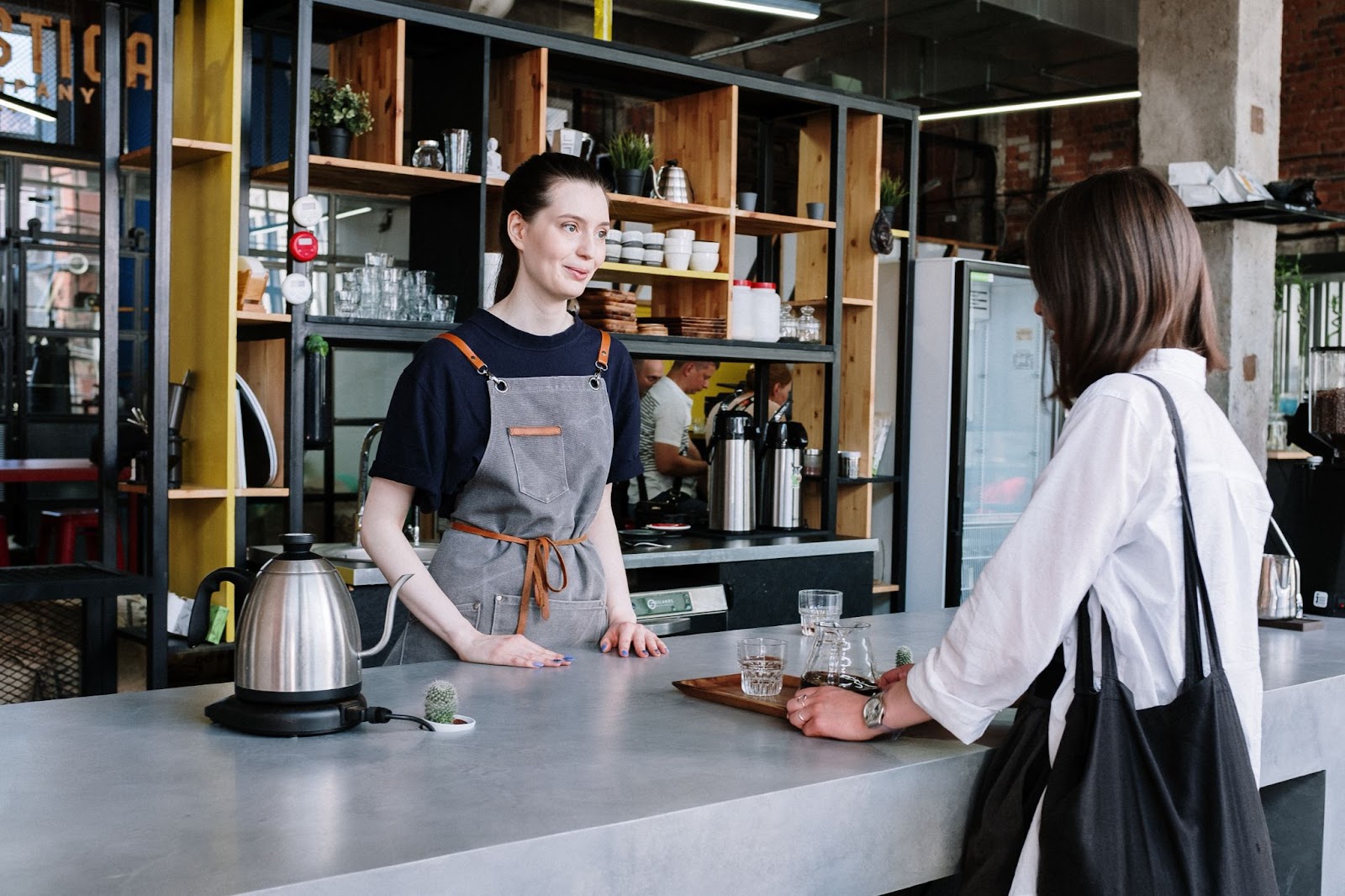
English for travel: Food and restaurants
Getting to know the local culture and culinary delicacies is also an essential element of holidays abroad. On holidays, we often eat in restaurants , go out for ice cream with the children or buy souvenirs . In all these situations, in a restaurant or in a store, you will also need a handful of English words and phrases, which will help you get along with the waiter or seller.
- Menu: A list of food and beverage options available at a restaurant.
- Appetizer/Starter: A small dish served before the main course.
- Main course/Entrée: The primary dish of a meal, typically larger than an appetizer.
- Dessert: A sweet dish or course served at the end of a meal.
- Beverage/Drink: A liquid consumed with a meal, such as water, soda, juice, or wine.
- Vegetarian: A person who does not eat meat. Vegetarian dishes are prepared without meat.
- Vegan: A person who does not consume any animal products. Vegan dishes are free from meat, dairy, eggs, and other animal-derived ingredients.
- Special of the day: A dish or menu item that is unique or highlighted for that particular day.
- Reservation: The act of booking a table at a restaurant in advance.
- Waiter/Waitress: A server who takes orders and serves food and beverages at a restaurant.
- Chef: The professional cook responsible for preparing and overseeing the kitchen.
- Bill/Check: The statement of charges for the meal that needs to be paid.
- Tip/Gratuity: An additional amount of money given to the server as appreciation for good service.
- To-go/Takeaway: Food ordered to be packaged and taken away instead of dining in the restaurant.
- Table for [number]: Requesting a table for a specific number of people.
- Gluten-free: Food items that do not contain gluten, a protein found in wheat, barley, and rye.
- Condiments: Sauces, dressings, or spices used to enhance the flavor of food.
- Allergies: Dietary restrictions or adverse reactions to specific ingredients.
- Non-alcoholic: Beverages that do not contain alcohol.
- Self-service/Buffet: A style of dining where customers serve themselves from a selection of food.
Travel expressions to use at the restaurant
- Could we have a table for [number] people, please?
- What do you recommend from the menu?
- Is the [dish] spicy/mild?
- Can I see the wine/beer list, please?
- Are there any vegetarian/vegan options available?
- Can I have the bill/check, please?
- Is service included in the bill/check?
- Can we split the bill/check, please?
- Excuse me, could I get some extra napkins, please?
- I’d like to order the [dish], please.
- Could I have a glass of water, please?
- Can I make a reservation for [time] tonight?
- Is it possible to customize the [dish] to my dietary preferences?
- What are the daily specials or chef’s recommendations?
- Excuse me, I have a food allergy. Can you accommodate special dietary needs?

Travel English phrases: Shopping
While travelling, we often see colorful souvenir shops around every corner. Buing souvenirs from travels is something families with kids often do. Let’s find out how to buy a souvenir in English and how to communicate with shop owner.
- Grocery store/Supermarket: A large retail store where you can purchase food and household items.
- Shopping cart/Trolley: A wheeled basket used for carrying items while shopping.
- Aisle: A pathway between shelves or displays in a store.
- Brand: A specific company or manufacturer of a product.
- Price: The cost of a product or item.
- Sale: A discounted price or special promotion on a product.
- Cashier/Till: The person or area where you pay for your purchases.
- Receipt: A document that serves as proof of purchase and itemizes your purchases.
- Cash: Physical money used for making purchases.
- Credit card/Debit card: Plastic cards used for making electronic payments.
- Discount: A reduction in price for a product or item.
- Checkout: The area or process of paying for your purchases.
- Shopping bag: A bag provided by the store to carry your purchases.
- Souvenir shop/Gift shop: A store that sells mementos and unique items related to a specific location or event.
- Souvenir: An item purchased to remember a place or experience.
- Local specialty: A product or food item that is unique to a particular region.
- Size: The measurement or dimensions of a product, particularly for clothing or shoes.
- Shelf: A flat surface where products are displayed and stored in a store.
- Salesperson/Shop assistant: An employee who assists customers and provides information in a store.
Travel questions you might need to ask while shopping
- How much does this cost?
- Do you have this in a different size/color?
- Is there a discount on this item?
- Can I try this on, please?
- Do you accept credit cards?
- Could you gift-wrap this for me?
- Is there a return/exchange policy?
- Can I get a receipt, please?
- Do you have any other similar items?
- Is there a warranty for this product?
- Can I see some more options in that category?
- What material is this made of?
- Can I get a discount if I buy multiple items?
- Are there any sales or promotions happening?
- Do you offer international shipping?
- Do you accept foreign currency?
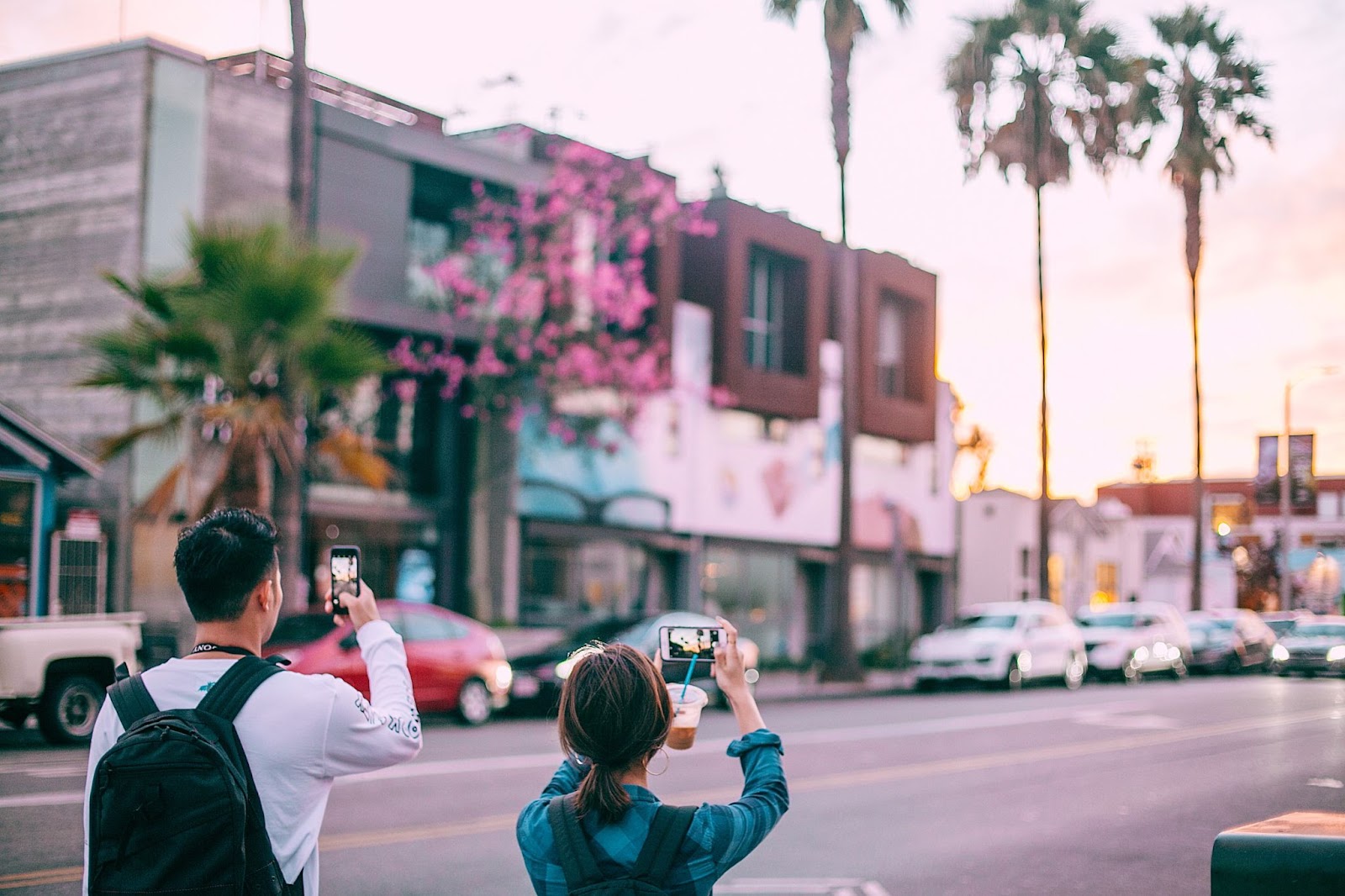
Travel English: Sightseeing
Here are some other useful phrases to help you communicate in English during sightseeing in an English speaking country.
- Tourist attraction: A popular place or site that is visited by tourists.
- Landmark: A well-known feature or structure that is easily recognizable and often of historical or cultural significance.
- Guidebook: A book or publication that provides information about tourist attractions, maps, and recommendations.
- Map: A visual representation of an area, showing roads, landmarks, and points of interest.
- Tour: A guided visit or journey to explore and learn about a place or attraction.
- Sightseeing: The activity of visiting and observing interesting places and attractions.
- Museum: A place that exhibits collections of historical, artistic, or cultural artifacts for public viewing.
- Gallery: An establishment that displays and sells works of art.
- Monument: A structure or statue built to commemorate a person, event, or historical significance.
- Cathedral: A large and important church, usually the seat of a bishop.
- Historical site: A place that holds historical significance and provides insights into the past.
- Architecture: The art and science of designing and constructing buildings.
- Sculpture: Three-dimensional artwork created by carving, molding, or casting.
- Plaza/Square: An open public space in a city, often surrounded by buildings and used for gatherings or events.
- Fountain : A decorative structure that releases water into a basin or jets it into the air.
Useful English expressions for sightseeing
- Can you recommend any must-see attractions in this city?
- How do I get to [landmark/attraction] from here?
- Is there a guided tour available for [landmark]?
- What time does [museum/attraction] open/close?
- Are there any entrance fees for [landmark/attraction]?
- Can you provide a map or brochure of the local sights?
- Is photography allowed inside [museum/attraction]?
- Are there any discounts available for students/seniors?
- Is there an audio guide or guided tour available in English?
- Can you tell me a bit about the history of this [monument/landmark]?
- Are there any nearby viewpoints for panoramic views of the city?
- Are there any specific guidelines or restrictions for visiting [attraction]?
- Can you recommend any good walking routes or scenic trails in the area?
- Is it possible to book tickets for [attraction] in advance?
- Are there any special events or exhibitions happening at [museum/attraction]?

Travel phrases in English: Emergencies / Health
We do not wish anyone any problems with health or emergencies during their vacation, but once they happen, it’s good to know some English phrases useful during communication with doctors or other authorities.
- Emergency: A serious or unexpected situation requiring immediate action.
- Help/Assistance: Requesting aid or support in a difficult situation.
- Hospital: A medical facility where people receive treatment for illnesses and injuries.
- Doctor/Physician: A medical professional who diagnoses and treats illnesses and injuries.
- Ambulance: A vehicle equipped for transporting people who are ill or injured to the hospital.
- Injury: Physical harm or damage to the body.
- Illness/Sickness: A state of poor health or a specific medical condition.
- First Aid: Initial medical treatment provided to an injured or ill person before professional medical help arrives.
- Medication: Prescribed or over-the-counter drugs used for treating or preventing illnesses.
- Allergy: A negative reaction of the body’s immune system to a specific substance.
- Pain: Unpleasant physical sensation or discomfort.
- Emergency contact: A person to be notified in case of an emergency.
- Insurance: Coverage that provides financial protection in case of unexpected events, including health emergencies.
- Pharmacy/Drugstore: A store where medications and medical supplies are sold.
- CPR (Cardiopulmonary Resuscitation): A life-saving technique used to revive a person whose heart has stopped beating.
Useful English expressions for emergency situations and at the hospital
- Help! There’s an emergency!
- Call an ambulance, please!
- I need urgent medical attention.
- Is there a hospital/clinic nearby?
- I’ve been injured. Can you please get me some help?
- I’m feeling unwell. Is there a doctor available?
- Where is the nearest pharmacy?
- I’ve lost my medication. Can you help me replace it?
- Is there an emergency contact I can reach out to?
- I need to go to the emergency room immediately.
- I’m allergic to [specific substance]. Please be cautious.
- I’m feeling dizzy/nauseous. Can you provide any assistance?
- Can you please notify my family/friends about the situation?
- I’ve been involved in an accident. Is there someone who can assist with the paperwork?
- Is there a translator available? I don’t speak English fluently.
- Where I’ll be able to get help?
Useful English idioms for traveling
- Hit the road: To begin a journey or start traveling.
- On the go: Constantly moving or traveling from one place to another.
- Catch some rays: To sunbathe or enjoy the sunshine.
- Break the ice: To initiate or start a conversation with strangers or in a new environment.
- Off the beaten path: Away from the usual tourist routes or popular destinations.
- Take a rain check: To postpone or reschedule a planned activity or event.
- Travel light: To pack only essential items and avoid carrying excessive luggage.
- Get lost: To explore without a specific destination in mind or to become disoriented in a new place.
- Breathe-taking view: An extremely beautiful or stunning sight.
- Itchy feet: A strong desire to travel or move from one place to another.
- Jet lag: The fatigue and disorientation experienced after traveling across different time zones.
- Home away from home: A place where you feel comfortable and at ease, as if it were your own home.
- Go the extra mile: To make additional effort or go beyond what is expected.
- Live out of a suitcase: To constantly travel or move around, often with limited possessions.
- Have a whale of a time: To have a great or enjoyable experience.
As you can see, memorizing useful phrases for travelling in English is not so complicated. We hope, that with all the examples, you’ll be able to travel comfortably on your next family vacation. Remember to encourage your kids to speak English on vacation abroad as much as possible, since it’s always best to practice English travelling phrases and other vocabulary in real life situations. Now you shouldn’t be afraid to ask questions regarding directions in English, ask about your hotel stay and check out from which platform your bus or train departures. Transportation, attractions and getting around in any English-speaking country and other EU countries will be much easier now!
Did you find this article helpful?
Good information for travelling, It is interesting. Thanks so much!
Well done. I found it very useful and in fact I was rather impressed to find a website with complete different vocabularies and expressions for all traveling necessities one could think of. Thanks very much.
Thanks for this wonderful article. It is so very helpful!
Leave a comment Cancel reply
Your email address will not be published. Required fields are marked *
Your message *


In this beginner-level ESL lesson, you will learn grammar, vocabulary, and phrases to talk about everyday English topics: an English conversation lesson to talk about and describe a place and experience while traveling.
This ESL lesson also comes with a downloadable PDF you can access when you are a member of Pocket Passport.
This ESL video lesson for daily English will help ESL students learn vocabulary, grammar, improve listening and be confident English speakers.
Practical English for everyday situations. When talking about travel, it’s important to know how to Give Directions in English and talk about a future or past trip and Sightseeing .

Warm Up Questions
What places interest you in Europe? Why?
Do you like to travel to busy cities or quiet places?
Do you like the beach? Swimming, suntanning, jet skiing, etc.?
Do you like Spanish food? How about French, Italian, German?
Do you take lots of photos when you travel?
Do you buy lots of souvenirs when you travel?

Watch the following ESL YouTube video lesson on travel.
Listening questions, watch the esl youtube video on travel and answer the following questions ..

What time did they arrive this morning?
Were they able to relax on the plane?
What is the best way to get around Barcelona?
Why is walking the best way to get around?
How are the beaches in Barcelona?
What else is good to see in Barcelona?
What did they have for lunch?
How will she share her memories with her mom?
Speaking Activity
Use the illustrations to talk about the passage and travel..

arrive | beach | beautiful | building | check into city | comfortable | interesting | photo | place | plane real | seat | see | send | sleep | soon | get around
Match the words on the left with the meanings on the right ..

Sentence Structure
Put the following sentences in the correct order ..

- way / around / because / walk / is / Barcelona / great / best / the / to / get / is / to / weather / The / !
- Barcelona / one / of / beaches / the / world / the / to / best / places / has / of / and / interesting / buildings / and / in / lots / see / old / .
- our / took / beautiful / buildings / around / the / of / into / photos / some / checked / and / we / city / hotel / the / After / we / walked / . / ,
- lunch / some / to / Spanish / food / great / had / a / For / went / and / restaurant / we / great / . / ,
- Spanish / some / was / to / interesting / real / try / food / It / .
- lots / I’m / soon / so / photos / some / taking / you / send / of / I’ll / , / !
Missing Words
Watch the video again and complete the sentences..

We are in Barcelona! We _______________ 1 at about 7 am this morning. We had very comfortable seats on the plane, so we _____________ 2 some good sleep before we arrived. Barcelona is a ________________ 3 city. The best way to get around Barcelona is to walk because the weather is great! Barcelona has one of the best ________________ 4 in the world and lots of interesting buildings and old places to see. After we __________________ 5 our hotel, we walked around the city and took some photos of the beautiful _____________ 6 . For lunch, we went to a great restaurant and had some great ________________ 7 food. It was interesting to try some real Spanish food. I’m taking lots of _______________ 8 , so I’ll send you some soon!
Love, Natasha
Are You a Teacher?
Get access to over 500 lessons.
- Audio Files
- Downloadable PDF’s
- Digital Quizzes & Flashcards
- Grammar Tools
- Gamification Tools
- Add Student Accounts
- Create & Sell Courses
Are You a Student?
Improve your….
- Vocabulary & Idioms

- Privacy Policy
- Terms and Conditions
Customer Care is here to help!
Copyright 2022 Procketpassport.com.
All Right reserved.
- Full Access to Select Lessons
- New Lessons Added Every Week
- Free Lessons Include:
- PowerPoints
- Everything in Free +
- Full Access to ALL Lessons
- Lesson & Course Builder
- Easily Create Sales Pages
- Sell Courses Online
- Upload Your Own Content
- Student Accounts
- Premium Teacher & Student Tools
- Online Reservation System
- Feedback & Evaluation Tools
- Full Admin Tools
- Full Customization
- & Lots More!
Enter your email address below where you would like us to send the free sample!
Your privacy is protected..

Your Free Sample will arrive shortly. Have a great day!
ESL Activities
ESL Games, Activities, Lesson Plans, Jobs & More
in Icebreakers + Warm-Ups · Listening · Reading · Speaking · Writing
Travel & Holidays ESL Games, Worksheets | ESL Travel Activities
If you need some fresh, new ideas for the ESL travel and holiday unit that you can find in most textbooks, then you’re in the right place. We’ll share our top ideas for games and activities, along with travel vocabulary, worksheets and lesson plans. Let’s get to the best ESL holiday activities.
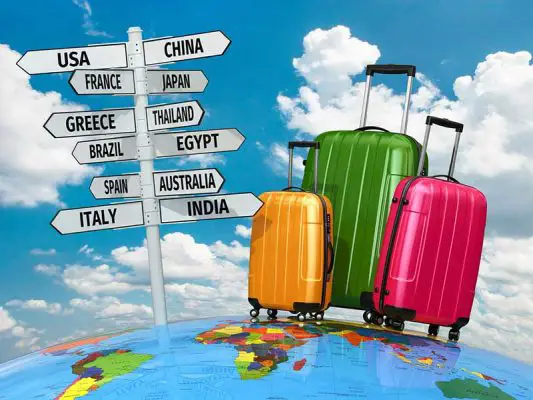
ESL holiday and travel-themed activities
Let’s get into everything you need to know for an ESL holiday lesson. Keep on reading!
ESL Travel and Holiday Activities
Here are the top ESL travel activities that you may want to try out with your students.
#1: Plan a Trip
Have your students plan a dream vacation in English! Instead of researching in their first language, use Google in English. In order to practice writing, keep notes only in English. Here’s an example of how you might plan your trip using English. You can have your students add as little, or as much detail as you’d like. However, the point of the activity is to practice writing in point form which is useful when writing outlines for tests or essays.
Day 1: Monday, January 1
Fly Seoul (3pm) —-> Vancouver (7am) Check in Hotel ABC, 123 Avenue Rest, relax
Day 2: Tuesday, January 2
Stay Hotel ABC Tour Stanley Park Eat Pub XYZ dinner
Day 3: Wednesday, January 3
Check out Hotel ABC Rent car Budget 123 Drive Whistler Rent skis shop ABC Go Skiing Lunch ski lodge Check in Hotel ABC Whistler Bed early
Procedure for one of my favourite ESL travel activities:
- Give students time to do some Internet research about a place they want to go. It’s helpful to specify the number of days. I generally make a rule that they must do this research in English. Suggest some helpful websites where they might like to start (Trip Advisor, Air BnB, etc.).
- Students can make a day-by-day itinerary of what they’re trip is going to look like.
- They can share about their trip with the class or turn it in for a graded assignment.
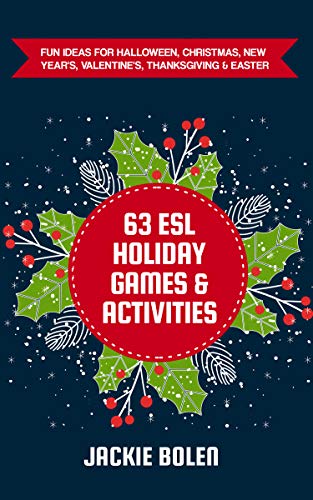
- Amazon Kindle Edition
- Bolen, Jackie (Author)
- English (Publication Language)
- 78 Pages - 03/22/2021 (Publication Date)
#2: A-Z Alphabet Game
If you know that your students already know a fair bit about holiday and travel, you may want to try this quick warm-up game. Or, you could consider using it as a review game at the end of a class.
The way it works is that students, in pairs or small groups write down the alphabet on a piece of paper. Then, they have to think of one travel related word for each letter. It doesn’t have to be done in order. For example:
P: Passport
The winner is the team with the most completed letters at the end of the allotted time. Do you want to find out more? Check this out: A-Z Alphabet Game ESL .
#3: Travel Word Association
This is nice ESL activity to do if you know that your students have studied about travel and holidays before. They can shout out vocabulary words related to this and you can make a mind map or sorts on the board. Group similar things together. For example, articles of clothing.
Find out more about this quick ESL warmer right here: ESL Vocabulary Word Association.

- 146 Pages - 06/18/2020 (Publication Date)
#4: Postcards ESOL Travel Activity
If you can get your hands on some cheap postcards or have some laying around your house or teacher’s office, try out this fun writing activity. It may just be the novelty factor, but students seem to love it. This activity is ideal for working on common greetings, the past tense (more ideas here: ESL past tense games ), and using descriptive words, as well as using synonyms to avoid repetition.
Distribute the postcards to the students. You can do one per student, or put the students into pairs. They have to look at the picture on the front of the postcard and imagine that they went on this vacation. Then, they can write about their trip to a friend or family member.
Next, the students trade postcards with another student or group. After reading them, they can write a response back of at least a few sentences. Finally, you may want to display them around the class as they’re colourful and fun and other students may enjoy reading them! Have some fun with this ESOL travel activity.
- Give each student or pair a postcard. They look at the picture and imagine what they did on that vacation, and then pretend that they’re writing to a friend or family member.
- Exchange postcards and another student or group have to write a response to what they read.
- Display the postcards around your classroom (optional).
#5: Travel or Holiday Videos
I’m ALL about using videos with my ESL/EFL students. They’re fun, engaging and a nice way to grab student’s attention and introduce a topic. Of course, you can base an entire class around one too if you design the activities well.
If you want to find out more about using them in your classes and some activities and games to do with them, you’ll want to check this out: Using Videos for Teaching English .
#6: Dictogloss ESOL Travel Activity
This is a challenging activity that works on listening and writing skills. Find a short story related to holiday or travel. It could even be a description of your own vacation that you took recently.
Then, you read out the story to your students in a way that is a bit challenging for them to catch every word. Students have to take notes and then try to reconstruct what they heard based on their notes in small groups. You can read it again so that students have a chance to make some additions or corrections. Finally, students compare their version with the original.
Do you want to try it out with your students? You can learn more about one of the best ESL travel activities here: ESL Dictogloss Activity .
#7: Holidays ESL Lesson Plan
It’s easy to plan an ESL lesson about any topic, including holidays. Check out this video for the steps to follow:
#8: Yes/No Questions and Answers
If you think about it, holidays and travel lend themselves to a ton of yes/no questions. For example:
- Did you fly or drive?
- Did you eat some delicious things?
- Was the food good?
- Did you have nice weather?
If you want to see some activities or games to work on these kinds of questions, you’ll want to check this out: Yes/No Activities and Games.

- 279 Pages - 07/12/2020 (Publication Date)
#9: ESL Food Activities and Games
I’m not sure if it’s the same for you, but when I travel, it’s ALL about the food. I want to try all the delicious things where I’m staying! The good news is that I have a ton of fun, interactive games and activities for food. You can easily adapt most of them to focus on holidays.
You can find out more details here: ESL Food Activities.
#10: ESL Surveys
I love to use surveys in my classes because they lend themselves to just about any topic. In the case of travel, they’re ideal for working on the present perfect and simple past together.
For example:
Have you ever travelled to another country?
Where did you go?
If you want to know more about how to design and use surveys in your classes for an ESL travel lesson, then you’ll want to check this out: Surveys for ESL Students.
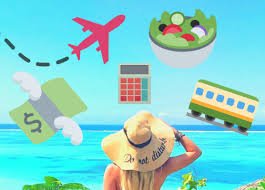
ESL Travel Games and Activities
I also love to use ESL surveys to get students to express an opinion in English.
#11: Present Perfect Activities Related to Travel
The present perfect is often used to talk about vacations, travel and holidays. For example:
- Have you ever been to another country?
- Have you travelled to ______ before?
In order to incorporate this grammatical construction into some of your lesson, you’ll want to check this out: Present Perfect ESL Activities.
#12: Brochure Scanning
This is an excellent travel activity! You’ll have to get your hands on some travel brochures first. The way it works is that students get tons of practice with a reading sub-skill (scanning) because they have to look quickly through the brochures to find specific bits of information. For example, cost or number or days.
Do you want to try out this reading activity? You can find out all the details here: Brochure Scanning Reading Activity for ESL .
#13: Odd One Out ESL Warmer
This is a quick English warm-up activity that you can try out with your students. The way it works is that you write words, in groups of 4 on the board. 3 are similar and 1 is the odd one out. Students have to choose this one and say why it doesn’t fit. For example:
Bathing suit, sunglasses, boots, flip-flops
Answers: Boots because it’s not for a beach vacation. I accept many different answers as long as students support it well.
You can learn more about this ESL warm-up here: Odd One Out for ESL .

- 87 Pages - 10/24/2019 (Publication Date)
#14: Would you Rather?
I’m sure you’ve done this before with friends. You have to choose between two negative things, or two positive things. For example, how you want to die, or what you want to eat. In this case, students could choose between two types of vacation. For example:
Would you rather have a beach or forest vacation?
Would you rather stay in a big hotel, or an AirBNB?
Learn more about this nice activity for an ESL travel lesson here: ESL Would You Rather?

- 110 Pages - 06/22/2021 (Publication Date)
#15: Task Based Activity: Dream Vacation
I love to incorporate this style of teaching into my holiday lessons. It allows students more freedom to choose what they want to learn about and also builds opportunities for some serious teamwork.
In this case, I’ll have students work in groups of 2-3 to plan a dream vacation. They can do some research to find out all the details including how to get there, food, budget, where to stay, etc. Then, they either have to write a report and hand it in to me and/or do a short presentation to the class.
Need some more ideas for this style of a lesson? Check this out: Task-Based Learning .
#16: Travel Themed Charades
I love to play charades with my students. The way it works is that you can think of some travel-related phrases. For example:
- Flying on a plane
- Sleeping on a bus
- Eating noodles
- Buying souvenirs
Then, students have to act this out and their teammates have to guess what the phrase is. More details here: ESL Charades.
#17: Travel Journal
Encourage students to keep a travel journal for a fictional trip. They can describe their experiences, sights, and sounds, using new vocabulary.
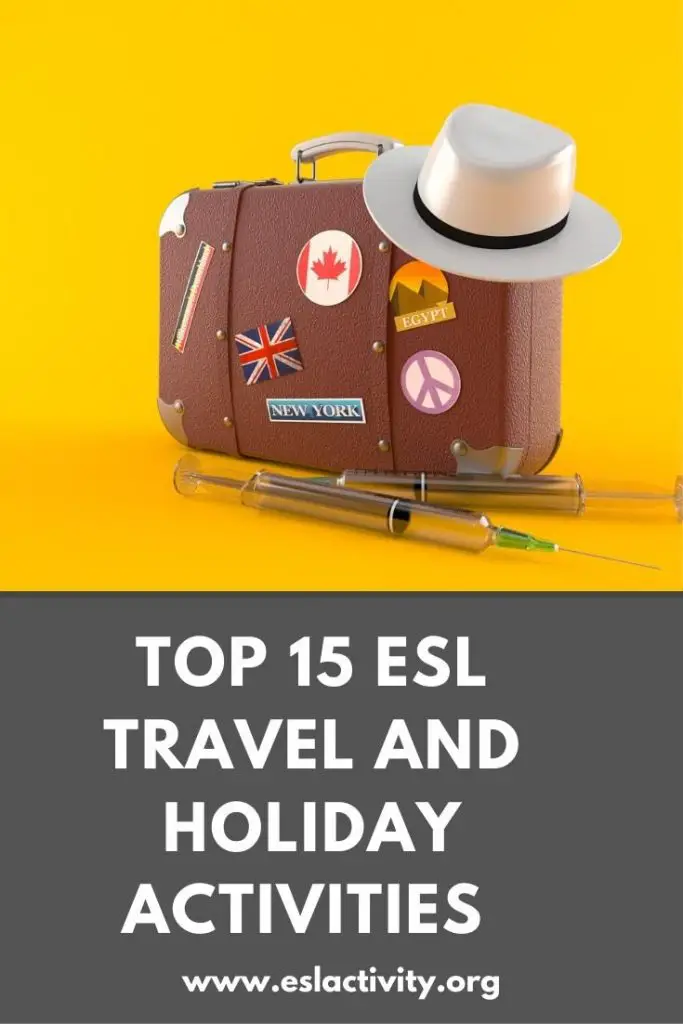
Travel and Holidays ESL
#18: Eliciting in an ESL Travel Lesson
Unless your students are absolute beginners, then it’s likely that they already know a good amount of travel and holiday vocabulary. That’s often why I like to start off my ESL traveling lesson by using some eliciting techniques. There are two main reasons for this.
The first reason is that it’s possible to find out what the students already know about this topic to avoid wasting class time covering these things. The second is that it helps students activate their prior knowledge about travel/holidays to make the new things they learn more memorable. Learn how to do this tactic for an ESL holiday lesson here:
ESL Eliciting Advice .
#19: Travel Listening Lesson
A nice way to talk about any topic is through a listening lesson. In this case, find a conversation between two people talking about an upcoming vacation plan. Or, someone talking about a favourite vacation from the past (it could even be you). Then, design an entire listening lesson around that. Find out how here:
#20: Idiom ESL Traveling Activity
There are lots of idioms related to holidays, travel and transportation. Here are just a few of them:
- All hands on deck
- To send flying
- Bump in the road
- Off the rails
- Train wreck
- Asleep at the wheel
- Fall off the wagon
- Hit the road
One of the best ways to make these idioms super memorable is to do this fun activity. Afterwards, your students will never forget! Learn more about this ESL activity:
Idiom Activity for Language Learners .
#21: Concentration ESL Traveling Vocabulary
One of the best ways to review new words during an ESL holiday or travel lesson is to play this memory game. Depending on the level of the students, make some matching pairs of cards with the following:
- Word/picture
- Word/definition
- Word/clue about the word
Then in small groups, students play the game to find the matches. Find out all the details about how to set it up and play:
ESL Concentration Game .
#22: Speaking Fluency Activity
To use this activity with a unit on holidays or travel, have students talk about a past, or upcoming vacation.
#23: Me Too!
Students have to make a true statement about themselves related to holidays and travelling. For example:
- I’ve been to Japan.
- I hate the beach.
- My family goes on a big vacation every summer.
If other students can agree, they stand up and say, “Me too!”
#24: Labour Day Guessing Game
#25: Holiday Interviews
Pair students and have them interview each other about their favorite holidays. They can then present their partner’s holiday to the class.
#26: Travel Bingo
Create bingo cards with images or words related to travel and holidays. Students mark off the squares as they learn new vocabulary.
#27: Travel-Themed Role-Plays
Set up role-plays where students act as travelers, airport staff, or hotel receptionists. This helps them practice common travel dialogues.
#28: Travel Vocabulary Pictionary
Play Pictionary using travel-related words. Students take turns drawing and guessing the vocabulary words.
#29: Travel Storytelling
Ask students to create and share short stories about a memorable travel experience they’ve had or wish to have in the future.
#30: Travel Debate
Have students debate the pros and cons of traveling. This encourages critical thinking and speaking skills.
Travel and Holiday Vocabulary
Here are some of the most common vocabulary words that you may want to teach your students related to traveling for an ESL holiday lesson.
- bathing suit
- boarding pass
- vaccination
- The months of the year in English
Do you have any ESL travelling vocabulary that you’d like us to add to the list? Leave a comment and let us know!
Travel Worksheets and Lesson Plans for ESL
If you’re looking for some worksheets or lesson plans related to holidays and travel, then you’ll want to check out some of our top resource recommendations:
ESOL Courses
ISL Collective
Lingua House
ESL Travel Vocabulary Worksheets
If you want students to get some practice with ESL travel vocab, here are a few recommendations:
English Club
Did you Like these Travel Games for ESL?
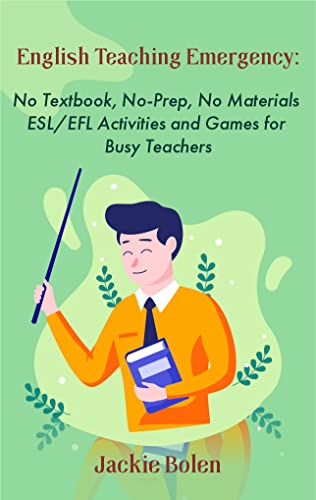
- 68 Pages - 11/12/2019 (Publication Date)
Yes? Thought so. Then you’re going to love this book: The Emergency English Teacher: No-Textbook, No-Prep, No-Materials ESL Activities.
If you’re always in need of last-minute activities and games for your classes, then this book is exactly what you might need. It’s English teaching made easy in a serious way.
You can get the book in digital or print formats. Take the e-version with you to your favourite coffee shop for lesson planning on the go. Or, keep a copy on the bookshelf in your office to use as a handy reference guide. But the best idea is to have it with you at all times for those English teaching emergencies.
Do you want to find out more? Head on over to Amazon to pick up your copy today:

FAQs about ESL Travel Lessons
There are a number of common questions that people have about teaching this unit. Here are the answers to some of the most popular ones.
What is the purpose of teaching the travel and holiday unit to English learners?
The purpose is to help English learners develop vocabulary, grammar, and conversational skills related to travel and holidays.
What topics can be covered within the travel and holiday unit?
Topics can include modes of transportation, booking accommodations, tourist attractions, holiday activities, travel phrases, and cultural aspects of different destinations.
How can I introduce vocabulary related to travel and holidays?
You can introduce vocabulary through visual aids, realia (actual objects), flashcards, and interactive activities such as matching games or vocabulary quizzes.
What grammar structures can be taught in the travel and holiday unit?
Grammar structures such as present simple for schedules and timetables, past simple for recounting travel experiences, future tenses for making travel plans, and modal verbs for expressing preferences or asking for permission can be taught.
What speaking activities can be used to practice travel and holiday-related topics?
Role-plays, group discussions about dream destinations, travel itineraries, or describing holiday experiences are effective speaking activities. Additionally, pair work activities like “Find Someone Who” or “Guess the Destination” can engage learners in conversation.
ESL Travel Activities and Games: Join the Conversation
What are your thoughts about these Holiday ESL activities? Do you have another one that you’d like to recommend to us? Leave a comment below and let us know what you think. We’d love to hear from you.
Also be sure to give this article a share on Facebook, Pinterest, or Twitter. It’ll help other busy English teachers, like yourself find this useful resource for ESOL travel lessons.
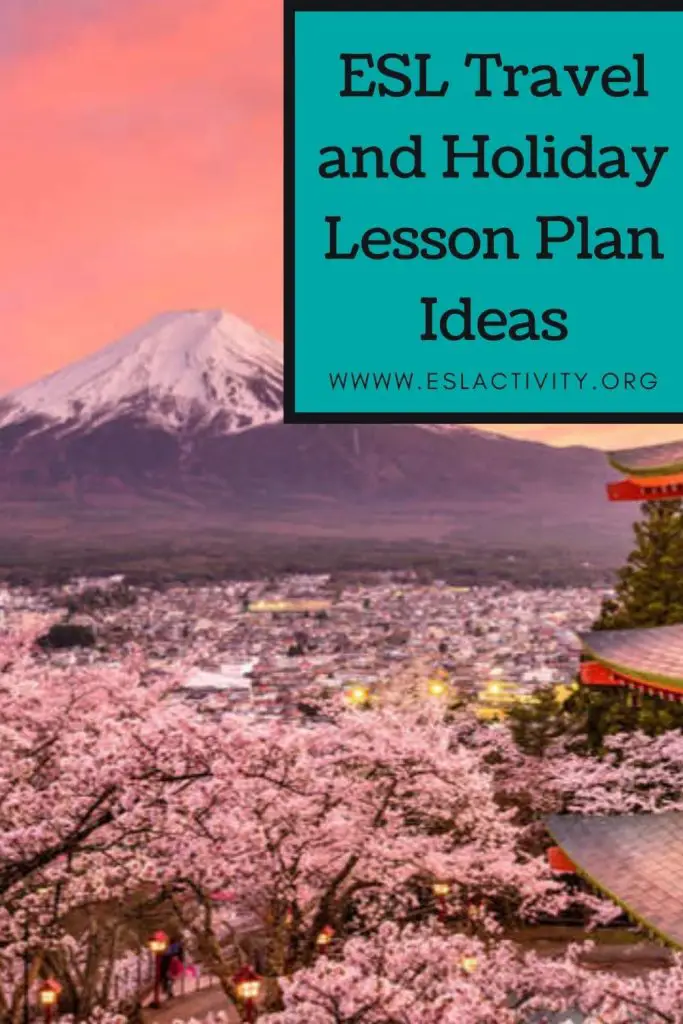
ESL Travel Lesson
Last update on 2022-07-17 / Affiliate links / Images from Amazon Product Advertising API
About Jackie
Jackie Bolen has been teaching English for more than 15 years to students in South Korea and Canada. She's taught all ages, levels and kinds of TEFL classes. She holds an MA degree, along with the Celta and Delta English teaching certifications.
Jackie is the author of more than 60 books for English teachers and English learners, including Business English Vocabulary Builder and 39 No-Prep/Low-Prep ESL Speaking Activities for Teenagers and Adults . She loves to share her ESL games, activities, teaching tips, and more with other teachers throughout the world.
You can find her on social media at: YouTube Facebook Pinterest TikTok LinkedIn Instagram
Top Selling ESL Activity Book

As an Amazon Associate, I earn from qualifying purchases.
More ESL Activities and Games

Teach Articles? ESL Articles Practice, Activities & Worksheets

What is the Relationship Between Language and Culture?

Top 10 American English Idioms | Speak English Fluently

20 Ways to Say Have a Good Day in English
About, contact, privacy policy.
Best-selling author and English teacher Jackie Bolen has been talking ESL activities and games since 2015. The goal is to bring you the best ideas, lesson plans, and activity recommendations for your TEFL classes.
Get in touch: About + Contact
Privacy Policy and Terms of Use
Email: [email protected]
Address: 2436 Kelly Ave, Port Coquitlam, Canada

More From Forbes
These unique travel experiences bring out your inner artist.
- Share to Facebook
- Share to Twitter
- Share to Linkedin
Travel can introduce you to new artistic endeavors.
Travel as an artistic expression is a growing trend for both seasoned and beginning artists. Whether your preferred medium is watercolor, acrylic, pen and ink or oil, travel can introduce you to new artistic endeavors, possibly previously unknown methods and techniques along with an entirely different perspective to your art. Drawing on new cultures and surroundings can help push one’s art to whole new levels. Of course, art comes in many forms and isn’t confined to painting or drawing, and hotels are responding by offering a wide variety of artistic endeavors.
A drawing instructor helps attendees unleash their inner artist.
Sip & Sketch
Loews Regency New York Hotel , New York
At Loews Regency New York Hotel, guests and locals alike can reserve a seat for a “Sip & Sketch” night. Available on July 30, Aug. 27 and Sept. 17 from 6:30 to 8:30 p.m. attendees can unleash their inner artist with a trained drawing instructor from the Society of Illustrators who will guide artists of all levels to capture their own interpretations of the themed model subject. Tickets can be purchased via The Regency Bar & Grill’s page for $40 per person and include complimentary passed champagne upon arrival and all artist materials. In addition to the hotel’s onsite programming, hotel guests can simply show their guestroom key card to enjoy a 20% discount off the museum admission which feature collections of the finest illustrations in America. The mission is to promote the art and appreciation of illustration and its history and evolving nature through exhibitions and educational programs. Travelers will have the opportunity to embrace the essence of “culture, community and craft” with an exclusive celebration, Local by Loews Hotels , a new brand program designed to celebrate the unique culture, flavors and hardworking individuals of each destination. Through exclusive partnerships, pop-ups and experiences with local businesses, guests will have the opportunity to indulge in authentic experiences that highlight the best of the local community year-round.
Afternoon tea is based on the Fashion Statements exhibit.
There Is Only One Actor Who Can Take Over As MCU Wolverine From Hugh Jackman
Crowdstrike update: microsoft releases windows tool to fix 8.5 million machines, today’s nyt mini crossword clues and answers for tuesday, july 23, artistic afternoon tea.
Rosewood Munich , Germany
The luxury hotel recently announced a new Afternoon Tea experience inspired by avant-garde luxury fashion house Viktor & Rolf’s ‘Fashion Statements’ exhibition at Kunsthalle München (Munich Art Gallery). In collaboration with Kunsthalle München, Rosewood Munich’s Executive Pastry Chef Shinas Shahida has curated a bespoke patisserie offering that spotlights the artistic designs of Viktor&Rolf, while combining classic craftsmanship with innovative techniques. The afternoon tea will be offered until the end of the exhibition (Oct. 4, 2024) and diners will also receive a discount on admission to the exhibition.
Fashion and afternoon tea both celebrate elegance and sophistication.
“We based our afternoon tea on the Fashion Statements exhibit because it perfectly aligns with the shared values of Kunsthalle München and Rosewood Munich, namely quality, creativity and innovation,” says Chef Shahida. “Fashion and afternoon tea both celebrate elegance and sophistication, making this a natural and harmonious pairing. The exhibit's bold, avant-garde designs provide a unique and visually striking theme, enhancing the tea experience. I drew inspiration from the fabrics, colors, designs and purpose of the exhibit. Everyone was immediately drawn to this idea. Kunsthalle München really appreciated our creative approach, and the Viktor & Rolf team also liked the idea. The biggest challenge was immersing myself in getting to know Viktor & Rolf better. I researched and read a lot about the brand, so that I could properly embody it in the pastries. This shows how much we value a good collaboration. These projects are a lot of fun for us because they allow us to express our creativity and work with great, motivated partners.”
Guests can participate in silhouette cutting lessons.
Silhouette Cutting Lessons
One Aldwych , London
Charles Burns , the UK's premier silhouette portraitist, offers silhouette cutting lessons to guests on property. Those interested in the ancient English art of silhouettes will be guided around the neighborhood by Burns. At the end of the walk you’ll stop for a cup of tea, and he’ll cut your own silhouettes as a souvenir. With a career that began as a street artist in Covent Garden, just steps away from One Aldwych, Burns quickly established himself as an exceptional talent in the world of silhouette artistry. Since those humble beginnings, Burns has become a well-known figure captivating audiences at some of London's most elegant high-society events.
Learn the timeless art of shaping clay.
Octant Vila Monte , Moncarapacho, Algarve
Octant Villa Monte, located just minutes from some of the Algarve’s most charming beaches, is an idyllic escape for tranquility and relaxation. Artistic offerings include:
Pottery - Visit the atelier of Francisco Eugénio and learn the timeless art of shaping clay on a wheel.
Tile Painting - Dive into the ancient art of traditional tile painting.
Handloom Weaving - This masterclass provides hands-on guidance to master the art of handloom weaving, understanding the essential principles of this ancient craft. From natural fibers to finished textiles, create your own handwoven masterpieces, customize patterns, experiment with textures and express your unique style on the loom. It includes all the necessary materials, with natural threads and wool in various colors.
The Art Studio & Gallery is a haven for artists.
Crafting Beauty From Nature
Sundance Mountain Resort , Utah
Sundance not only captivates visitors with its stunning natural beauty, but also strives to enrich the cultural experience through creativity. At Sundance a value for the arts is at the very core of the resort's ethos. The Art Studio & Gallery is a haven for artists and creatives to connect with a community that values art, nature and community. Through its unique Visiting Artist Program, the property displays rotating artwork every four weeks, highlighting Utah artists. The Art Studio and Gallery explores diverse mediums, hosts engaging events and illustrates the magnificent integration of art and nature. Guests are invited to unleash their creativity through a variety of classes and workshops including jewelry making, clay throwing, soap making, journal making, watercolor, acrylic or oil painting, drawing and printmaking. One of the unique aspects of Sundance's art programming is the emphasis on the synergy between art and nature.
Guests can engage in a creative experience while sipping wine.
Paint & Sip with Sasha the Artist
Park Hyatt St. Kitts , Saint Kitts and Nevis
Paint & Sip with Sasha The Artist offers an authentic experience for visitors looking to enhance their stay in St. Kitts and Nevis. Hosted on the ambient properties of the luxury hotel, guests – including corporate teams – can engage in a creative experience, sipping wine as they create their very own souvenir inspired by the beauty of the beloved Federation. Led by the talented local artist and entrepreneur Sasha Herbert, affectionately known as Sasha The Artist, guests are able to create cherished memories of their time in St. Kitts and Nevis, one guided step at a time. This experience, recognized as one of St. Kitts' top five island highlights by the British Airways Executive Club E-Zine, is a well-deserved accolade that speaks to the quality and impact of her offerings.
- Editorial Standards
- Reprints & Permissions
Join The Conversation
One Community. Many Voices. Create a free account to share your thoughts.
Forbes Community Guidelines
Our community is about connecting people through open and thoughtful conversations. We want our readers to share their views and exchange ideas and facts in a safe space.
In order to do so, please follow the posting rules in our site's Terms of Service. We've summarized some of those key rules below. Simply put, keep it civil.
Your post will be rejected if we notice that it seems to contain:
- False or intentionally out-of-context or misleading information
- Insults, profanity, incoherent, obscene or inflammatory language or threats of any kind
- Attacks on the identity of other commenters or the article's author
- Content that otherwise violates our site's terms.
User accounts will be blocked if we notice or believe that users are engaged in:
- Continuous attempts to re-post comments that have been previously moderated/rejected
- Racist, sexist, homophobic or other discriminatory comments
- Attempts or tactics that put the site security at risk
- Actions that otherwise violate our site's terms.
So, how can you be a power user?
- Stay on topic and share your insights
- Feel free to be clear and thoughtful to get your point across
- ‘Like’ or ‘Dislike’ to show your point of view.
- Protect your community.
- Use the report tool to alert us when someone breaks the rules.
Thanks for reading our community guidelines. Please read the full list of posting rules found in our site's Terms of Service.
Delta Air Lines cancels hundreds more flights as DOT opens probe
Delta canceled 400 more flights Tuesday as its troubles in the wake of the global CrowdStrike-Microsoft IT outage dragged on for the fifth consecutive day.
More than 300 of the Atlanta-based carrier’s flights were delayed Tuesday.
The ongoing issues have prompted the Transportation Department’s Office of Aviation Consumer Protection to open an inquiry, citing “the high volume of consumer complaints” it has received about issues at Delta.
“We have made clear to Delta that they must take care of their passengers and honor their customer service commitments,” Transportation Secretary Pete Buttigieg said in a statement. “This is not just the right thing to do, it’s the law, and our department will leverage the full extent of our investigative and enforcement power to ensure the rights of Delta’s passengers are upheld.”
Delta has been uniquely affected by the global IT outage compared with other major carriers, who have largely resumed normal operations. In a statement on its website Monday afternoon, Delta estimated that more than half of its IT systems worldwide rely on Microsoft Windows.
Friday's CrowdStrike error, it said, "required Delta’s IT teams to manually repair and reboot each of the affected systems, with additional time then needed for applications to synchronize and start communicating with each other."
It continued: "One of Delta’s most critical systems — which ensures all flights have a full crew in the right place at the right time — is deeply complex and is requiring the most time and manual support to synchronize."
A Delta representative did not immediately respond to a request for comment Tuesday.
Social media has been filled with images of passengers stranded away from their destinations. An additional complicating factor has been coordinating flyers' luggage as they seek to rebook, reflected in a significant volume of Delta's social media team responses on X related to baggage issues.
CEO Ed Bastian and Chief Information Officer Rahul Samant provided an update in a video message to employees Monday.
Bastian said that the company is working around the clock to get its operation back on track but that it will take another couple of days before the worst is over.
“Today will be a better day than yesterday, and hopefully Tuesday and Wednesday will be that much better again,” he said.
Rob Wile is a Pulitzer Prize-winning journalist covering breaking business stories for NBCNews.com.
Don't forget: Disney World’s Genie+ system changes tomorrow
- Disney's Lightning Lane entry lets parkgoers bypass the standby queue and join a separate queue for select attraction and entertainment experiences.
- The Lightning Lane Multi Pass will include the same rides currently covered by Genie+.
- Guests can make up to three advance Lightning Lane Multi Pass selections for each day of their trip.
Get more news like this delivered to your inbox by signing up for our Travel newsletter here .
Heading to Disney World anytime on or after Wednesday, July 24? You might not be aware that a certain genie is going back into its bottle and we're not referencing Aladdin.
Last month, the amusement park announced its Genie+ system was being replaced by two new systems starting in July, with those changes about to kick off.
Implemented back in 2021 , the Genie system served as an in-park planning tool and attraction reservation system. With the addition of Genie+, guests could reserve times to experience attractions for an additional cost, replacing the free Disney FastPass system.
Here's what these changes are and how they can impact your upcoming Disney vacation starting tomorrow.
What is Disney's Lightning Lane?
Disney's Lightning Lane entry lets parkgoers bypass the standby queue and join a separate queue for select attractions and entertainment experiences. There will be two new systems starting on Wednesday — the Lightning Lane Multi Pass and Lightning Lane Single Pass.
The Lightning Lane Multi Pass will include the same rides currently covered by Genie+ . A la carte Lightning Lane Single Passes will be available for the most popular attractions at each park, like Individual Lightning Lanes .
How does Lightning Lane Multi-Pass and Single Day differ from Genie+ and Individual Lightning Lanes?
Guests staying at Disney World’s resort hotels can make selections up to seven days in advance, all at once, for up to 14 days of their stay. Other guests can make selections up to three days in advance. So, no more waking up at 7 a.m. to book the Slinky Dog Dash Roller Coaster or Star Wars Smugglers Run!
Parkgoers will also be able to see prices and select attraction times before purchasing passes, “so you know what you’re getting.” Currently, guests have to purchase Genie+ before they can see availability. Disney World’s app and website will be updated for easier planning and purchasing.
How many pre-arrival selections can be made with Lightning Lane Multi-Pass or Lightning Lane Single Pass?
Guests can make up to three advance Lightning Lane Multi Pass selections for each day of their trip. Once they arrive at the park and complete their first experience, they can book additional experiences pending availability.
Lightning Lane Single Passes remain limited to two per day, like Individual Lightning Lanes are currently.
How much is the Lightning Lane at Disney World?
Disney Lightning Lane pricing varies by date and park. These changes will not result in a price increase.
According to Walt Disney World officials , guests can expect similar pricing to Genie+ when Lightning Lane Multi-Pass launches.
How do I purchase the Lightning Lane Single and Multi-Pass?
Before you purchase a Lightning Lane pass , Disney World officials say you’ll need to do 3 things:
- First, download the latest version of the My Disney Experience app .
- Connect everyone in your travel group on your Family & Friends list in the My Disney Experience app — so you’ll be able to purchase Lightning Lane passes and make plans for everyone eligible.
- Gather your group’s wish list for attractions and experiences. You can save your group’s top picks in the My Disney Experience app using the “My Day” feature.
When you’re ready to purchase Lightning Lane passes, here’s what to do:
- Open the My Disney Experience app , then tap the Lightning Lane Passes section on the home screen.
- Select a date and theme park.
- If you select a Lightning Lane Multi Pass, you can choose up to 3 Lightning Lane Multi Pass experiences and arrival windows in advance.
- If you select a Lightning Lane Single Pass, you can choose an arrival window in advance.
- Follow all prompts to complete your purchase — and receive a confirmation.
- From the confirmation screen, you can tap “Plan Another Day” to purchase another pass — or tap “View My Day” for details about your Lightning Lane selections.
Can Lightning Lane Single and Multi-Pass both be purchased together?
Yes. You can purchase all Lightning Lane passes for your travel party in a single transaction on the same day.
However, the FAQ section of the site notes that Lightning Lane Multi Pass holders can only choose from a variety of eligible multi-pass attractions and experiences. For single-pass attractions, Lightning Lane entry is only available with the purchase of a Lightning Lane Single Pass.
Can I modify my Lighting Lane Single and Multi-Pass plans?
Yes. Officials advise those to tap the Lightning Lane Passes section on the My Disney Experience home screen to find their plans. Then, you can:
- Change your selected park and/or date in advance (subject to availability) — up until the moment you redeem your first Lightning Lane selection of the day.
- Change each selected experience and/or arrival window in advance (subject to availability)—up until the start of the arrival window
See Lightning Lane attractions in all Disney World parks
All of the Lightning Lane experiences and options are subject to change without notice and are subject to availability, according to Disney's website. Here's what attractions are available under the different pass tiers:
Magic Kingdom:
Choose up to one experience from this group:
- Big Thunder Mountain Railroad
- Jungle Cruise
- Peter Pan’s Flight
- Space Mountain
- Tiana’s Bayou Adventure
Choose your other 2 experiences — or all 3 — from this group:
- The Barnstormer
- Buzz Lightyear’s Space Ranger Spin
- Dumbo the Flying Elephant
- Haunted Mansion
- “it’s a small world”
- Mad Tea Party
- The Magic Carpets of Aladdin
- The Many Adventures of Winnie the Pooh
- Mickey’s PhilharMagic
- Monsters Inc. Laugh Floor
- Pirates of the Caribbean
- Tomorrowland Speedway
- Under the Sea ~ Journey of The Little Mermaid
Single Pass Attractions (Not available with the Multi Pass)
- Seven Dwarfs Mine Train
- TRON Lightcycle / Run
- Frozen Ever After
- Remy’s Ratatouille Adventure
- Soarin' Around the World
Choose your other 2 experiences—or all 3—from this group:
- Disney and Pixar Short Film Festival
- Journey into Imagination with Figment
- Living with the Land
- Mission: SPACE
- The Seas with Nemo & Friends
- Spaceship Earth
- Turtle Talk with Crush
- Guardians of the Galaxy: Cosmic Rewind
Hollywood Studios:
- Mickey & Minnie’s Runaway Railway
- Millennium Falcon: Smugglers Run
- Rock 'n' Roller Coaster Starring Aerosmith
- Slinky Dog Dash
- Alien Swirling Saucers
- Beauty and the Beast Live on Stage
- Disney Junior Play & Dance!
- For the First Time in Forever: A Frozen Sing-Along Celebration
- Indiana Jones Epic Stunt Spectacular
- Muppet*Vision 3D
- Star Tours – The Adventures Continue
- The Twilight Zone Tower of Terror™
- Toy Story Mania!
- Star Wars: Rise of the Resistance
Animal Kingdom:
Choose all 3 experiences from this group:
- Expedition Everest – Legend of the Forbidden Mountain
- Feathered Friends in Flight!
- Festival of the Lion King
- Finding Nemo: The Big Blue... and Beyond!
- It’s Tough to Be a Bug!
- Kali River Rapids
- Kilimanjaro Safaris
- Naʻvi River Journey
- Avatar Flight of Passage
Can I make ride selections for multiple Disney parks?
Disney's website shares that once you redeem a selection on the day of your park visit, you can use the My Disney Experience app to choose another multi pass experience in any Walt Disney World theme park, as long as you have a valid ticket with the Park Hopper option or an Annual Pass.
The ability to visit another park is subject to the park’s capacity limitations.
Can I book the same rides multiple times in a day? Is the '120' rule still a thing at Disney?
Disney Tourist Blog shares that, just as with Genie+, you won’t be able to book the same Lightning Lane more than once per day.
Frequent parkgoers and Genie+ might recall the infamous "120 rule" which is where you can only make a new selection every 120 minutes or after you have redeemed the previous Genie+ selection, whichever comes first. With the changes to Lighting Lane, the rule is now gone.
Will Disney Genie still be available?
The free Disney Genie planning tool will still be available for all guests to help plan their trips, but the paid Genie+ service is changing.
Contributing: Eve Chen, USA TODAY
The Key Points at the top of this article were created with the assistance of Artificial Intelligence (AI) and reviewed by a journalist before publication. No other parts of the article were generated using AI. Learn more .
HUBSPOT CUSTOMER PLATFORM
Grow better with HubSpot
Software that's powerful, not overpowering. Seamlessly connect your data, teams, and customers on one AI-powered customer platform that grows with your business.
Get a demo of our premium software, or get started with free tools.
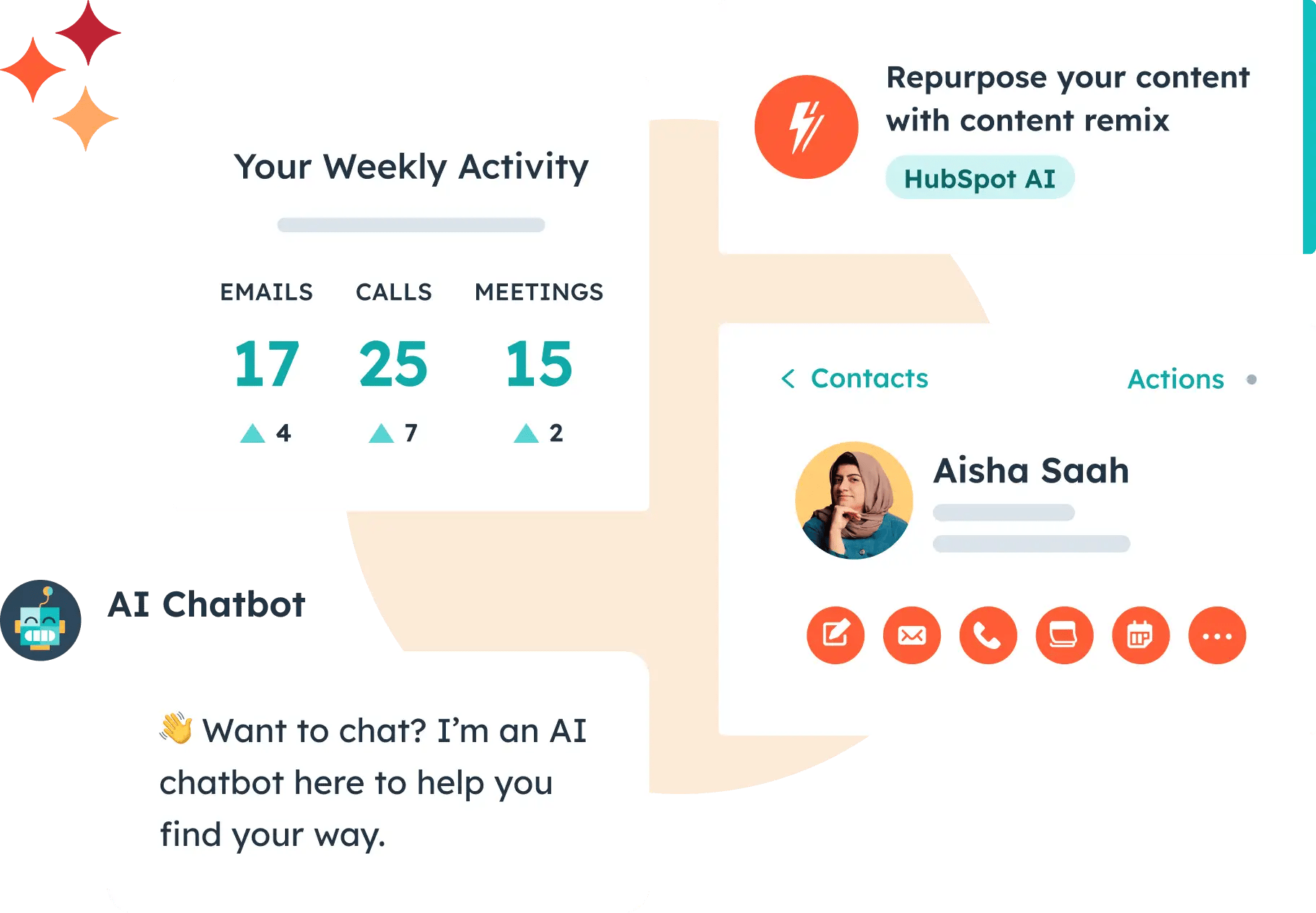
216,000+ customers in over 135 countries grow their businesses with HubSpot

What is HubSpot?
HubSpot is an AI-powered customer platform with all the software, integrations, and resources you need to connect your marketing, sales, and customer service. HubSpot's connected platform enables you to grow your business faster by focusing on what matters most: your customers.
Get a demo to learn about our premium software, or get started with our full suite of free tools and upgrade as you grow.
.webp?width=907&height=468&name=crm-platform-asset-alt@2x%20(1).webp)
Your whole front office. One customer platform.
Marketing hub ®.
AI-powered marketing software that helps you generate leads and automate marketing.
Popular Features
- AI-powered lead generation
- Marketing automation
Sales Hub ®
Easy-to-adopt sales software that leverages AI to build pipelines and close deals.
- Prospecting workspace
- Deal management
- Sales automation
Service Hub ®
Customer service software powered by AI to scale support and drive retention.
- Omni-channel help desk
- Customer success workspace
Content Hub ™
All-in-one, AI-powered content marketing software that helps marketers create and manage content.
- Content remix
- Brand voice
- AI-powered content creation
Operations Hub ®
Operations software that leverages AI to help you activate and manage your data.
- Programmable automation
- AI-powered data quality automation
Commerce Hub ™
B2B commerce software designed to help you collect payments and automate billing.
- Invoices & subscriptions
- Payment links

Small Business Bundle
The Starter edition of every HubSpot product, bundled together at a discounted price for your startup or small business. Find and reach customers, grow sales and get paid faster, and organize customer data — all on one unified platform.
Solutions for every business
Growing a business isn’t easy, but we’ve got your back. Explore some of our customers’ top business challenges and learn how HubSpot’s integrated software and solutions can help you leave these problems in the past.

Generate High-Quality Leads and Maximize Revenue
Discover how to use AI-powered marketing tools to attract and convert more leads without multiplying your marketing spend.

Accelerate Your Sales and Close More Deals Faster
Start closing more deals faster and streamlining your sales process with HubSpot’s AI-powered deal management tools.

Create Content for Every Stage of the Customer Journey
Fuel the entire customer journey with content across formats and channels with all-in-one, AI-powered content marketing software.
What’s new at HubSpot
Growing a business is hard. Your software shouldn't make it harder.
1,500+ ways to connect your tools.

Voted #1 in 318 Categories
Popular blog posts.

The Psychology of Short-Form Content: Why We Love Bite-Sized...
Erica Santiago

Learn from My Mistakes: 7 Digital Course Pitfalls to Skip
Amy Porterfield

How To Do Representation in Marketing the Right Way (+ Consu...
Sonia Thompson

How to Use AI For a More Effective Social Media Strategy, Ac...
Ross Simmonds
HubSpot is already easy to use. But we’re still here for you.
We’re here to help your whole team stay ahead of the curve as you grow.
24/7 Customer Support
Onboarding services, free courses & certifications, developer tools, hubspot for startups.
Apply for special pricing, resources, and support for your startup.
Ebooks, Guides & Templates
Grow better with hubspot today.

- Share full article
Advertisement
Supported by
What’s More Italian Than Making Pasta With Grandma?
In a small town near Rome, real nonnas teach the dying art of making farfalle, ravioli and other forms with a rolling pin, some flour and eggs.

By John Henderson
Growing up in rural Italy in the 1990s, Chiara Leone remembers spending Sundays at her grandmother’s. Big sheets of handmade pasta dried on cotton sheets in the bedroom. The aroma of ragu filled the air. Her grandmother hugged her in an apron, a flour-covered rolling pin in hand.
“Handmade pasta is the symbol of a Sunday lunch with the family,” Ms. Leone said. “Now people go to restaurants.”
Ms. Leone and her childhood friend Chiara Nicolanti, both 37, and nine grandmothers in the small town of Palombara Sabina are trying to change that. Their company, NonnaLive , has the grandmothers teaching guests the dying art of making pasta by hand up to five times a day, seven days a week.
“I have three grandkids,” said Angela De Paolis, 68, one of the grandmothers, who goes by the nickname Lalla. “One thing I love is instead of putting my grandkids in front of the TV or video game, I make them make pasta with me. I start crying when I see my grandchildren make pasta, and I remember when my grandmother taught me how to make pasta.”
The company began seven years ago after Ms. Nicolanti became pregnant. She spent more time with her grandmother Nerina, who often made pasta in front of her. One day Ms. Nicolanti took a picture and put it on Facebook with the cheeky caption, “Hey, who wants to cook with Grandma today?”
“The post kind of went viral,” Ms. Nicolanti said. “Suddenly everyone was asking me about coming to make pasta with Grandma .”
Some of their first customers were curious chefs whose pasta machines made handmade pasta irrelevant. Then guests came who had learned to make pasta as a child but hadn’t continued. Later they had tourists from around the world. With more and more travelers saying they want authentic experiences on their trips, what could be more Italian than learning to make pasta with actual grandmothers?
These days the women teach about 5,000 guests a year in their homes in Palombara Sabina, a hilltop town not far from Rome. They are a top experience on Airbnb for Rome ($104 per adult). They have expanded to Paris and to other cities in Italy upon request. After every cooking class they receive ovations.
A lost generation
Pasta in Italy can be traced back to the 4th century B.C. But it wasn’t until the 17th century when mechanical presses arrived that pasta became part of Italians’ common diet. Much of that pasta was made at home by women using rolling pins. But as Italian society has changed and women gained options outside the home, the practice of making pasta by hand has dwindled.
Today Italians eat an average of 60 pounds of pasta per person per year, the most in the world. But very little of that is homemade: Pasta sales in Italy last year totaled more than $5.3 billion.
Ms. Leone said her mother stopped making pasta in the 1960s. “They missed one generation — our parents’ generation,” in passing down the knowledge, she said.
At the start of a recent class, Ms. Leone gave nine tourists from around the U.S. and Spain a quick tour of Palombara Sabina (pop. 13,000), a collection of narrow, windy cobblestone streets sitting high atop a foothill of the Apennine Mountains 25 miles north of Rome. Hovering over the town is the 11th-century Castello Savelli , now popular for weddings and with, on a clear day, a killer view all the way to Rome from its watchtower.
After the tour, the group gathered around a long table in Ms. Curci’s spacious home. Each spot had a rolling board, a special long, thin rolling pin, a dough cutter and ingredients — flour and eggs. Using Ms. Leone as a translator, Ms. Curci explained that they would make farfalle — bow-tie pasta — and ravioli, then use leftover dough to make fettuccine with fresh tomato sauce.
“One hundred grams of flour per egg,” Ms. Curci said. “That’s the portion for one person. If you have eight people for dinner you use 800 grams of flour and eight eggs.”
The process is labor intensive. The grandmothers use the ancient technique of folding the pasta around the rolling pin, allowing the dough to have a different thickness and consistency. Ms. Curci had the students all mix an egg with the flour, knead it into a ball, roll it, smooth it, wrap it around a rolling pin and roll it some more. They then cut the dough into squares and pinched each piece with their thumb and middle finger to form the bow-tie shape. These would be topped with a sauce of olive oil, almonds and crushed garlic.
For the ravioli, dollops of pre-mixed ricotta and spinach were placed onto long strips of dough. The students then folded the dough over the fillings, sealed the edges and cut the strip into squares.
Some guests did all this naturally. “It was a lot simpler and less intimidating than I thought it would be,” said Eric Lawhorn, 33, a police officer visiting from Houston.
Others had more dough on their hands than the rolling board.
“Mamma mia!” said Ms. Curci, rescuing the batch from one struggling guest. “Watch me.”
It took about two hours to make enough pasta for the group. Ms. Curci said it would take her much less time when she doesn’t have to teach.
Catherine Tan, 37, a sociology professor at Vassar College in Poughkeepsie, N.Y., said that during the pandemic, her family would bake together over Zoom. “That was a really nice experience, and this is sort of the next step.”
Whether handmade pasta becomes the norm in Italy again may depend more on changing lifestyles than NonnaLive. But they have made an impact, at least aesthetically.
“I love it,” said Andy Luotto, a noted Italian TV cooking show host who moved from New York to Rome in 1974 and also teaches pasta-making classes. “When I find out a grandmother is doing a demonstration, I’ll go watch her. Maybe I’ll pick up a technique. As long as that exists, there is hope for Italy.”
Follow New York Times Travel on Instagram and sign up for our weekly Travel Dispatch newsletter to get expert tips on traveling smarter and inspiration for your next vacation. Dreaming up a future getaway or just armchair traveling? Check out our 52 Places to Go in 2024 .
Open Up Your World
Considering a trip, or just some armchair traveling here are some ideas..
52 Places: Why do we travel? For food, culture, adventure, natural beauty? Our 2024 list has all those elements, and more .
San Diego: Dripping with flowers, adorned in murals and fronted by gorgeous beaches, the city is almost too pretty to be taken seriously. It excels at being underrated and overlooked .
Switzerland: Nostalgic for a time before ubiquitous connectivity, a writer ditched his phone and relied instead on serendipity — and hand-drawn maps made by people he met along the way .
Paris: These six Parisian boulangeries will satisfy your cravings for the crustiest baguettes, the airiest brioches and the flakiest viennoiseries.
Athens and Crete: On a family tour of Greece, a writer followed the small footsteps of some of ancient mythology’s biggest fans.
Izmir, Turkey: The vibrant, 8,500-year-old “Pearl of the Aegean” has again redefined itself as a hub for international explorers , with a 2,400-year-old bazaar and the ancient Agora as chief attractions.
Media Release
Fédération Internationale de Football Association
FIFA Strasse 20, P.O Box 8044 Zurich, Switzerland, +41 (0) 43 222 7777
On Location appointed as Official Hospitality Provider of the FIFA World Cup 26™
Global leader in premium experiences to create the biggest-ever FIFA World Cup™ Official Hospitality Programme
Selection followed a thorough RFP process to identify the best provider for the game-changing tournament’s fan services and entertainment
Ticket-inclusive hospitality packages expected to go on sale in late 2024 via FIFA.com and official sales agents
FIFA has appointed On Location, a global leader in premium experiences, hospitality and travel, as the Official Hospitality Provider of the FIFA World Cup 26™, which will take place across Canada, Mexico and the USA from 11 June to 19 July 2026. Chosen following a thorough selection process, On Location will help FIFA deliver its biggest-ever and most dynamic hospitality programme for the FIFA World Cup 26, offering ticket-inclusive fan experience packages for the world’s biggest single-sport event. From die-hard football fans to friends and families, and to companies hosting guests or employees, FIFA and On Location will provide options to suit all types of fans. The stadiums hosting FIFA World Cup 26 matches already boast some of the world’s best hospitality features. With products ranging from exclusive stadium suites to bustling hospitality villages and extraordinary add-on experiences in between, there will be more choices than ever before. Hospitality packages are expected to hit the market later this year via FIFA.com/hospitality and official sales agents, providing the first opportunity for fans to purchase official FIFA World Cup 26 tickets.
Mattias Grafström, FIFA Secretary General, said: “North America has long been renowned as a global leader in delivering the best sports and entertainment experiences for fans, while the FIFA World Cup is known for offering the most unique and thrilling atmosphere one can experience in a stadium. With this groundbreaking agreement, we’re sure that we have found the perfect provider to offer premium experience products for the next World Cup that will appeal to domestic audiences across all three host countries, as well as the millions expected to travel from abroad for this historic tournament in 2026.” “Together with On Location, we will be able to curate and deliver game-changing experiences that will bring new fans to the game and offer enhanced experiences to anyone who attends any of the amazing stadiums in the 16 unique Host Cities.” As the Official Hospitality Provider of the FIFA World Cup 26, On Location will have exclusive global rights to promote, sell and operate the Official Hospitality Programme at the 16 state-of-the-art stadiums – including five at which it has previously delivered Super Bowl hospitality – across the tournament’s Host Cities. For more information on the Host Cities and the match schedule that was unveiled in February 2024, click here .
Paul Caine, President of On Location, said: “The FIFA World Cup 26 will be transformative for the sport, and we are proud to be working with FIFA to deliver its largest hospitality programme ever and playing a role in football’s growth in North America. More people than ever will have the chance to experience an elevated, modern take on hospitality at one of the world’s greatest events, making memories that will last a lifetime. “Our official hospitality guests can expect a wide range of packages and prices, premium hospitality and a cutting-edge e-commerce platform, ensuring a seamless experience from start to finish. These once-in-a-lifetime experiences will celebrate the beautiful game and the unique culture of each Host City.” Guests will have the opportunity to purchase official hospitality products for individual matches or in bundles, allowing them to attend several matches in one or more cities, during a particular tournament stage, or to follow a specific national team. The products on offer will also include unforgettable add-on experiences for matchdays and non-matchdays in conjunction with ticket-inclusive hospitality packages.
Following extensive market research and a consultation period to identify the best-in-class practices and providers for this specific tournament and its domestic markets, FIFA launched a highly competitive RFP process in September 2023. On Location stood out on account of its extensive experience of delivering hospitality programmes at some of the world’s most complex and high-profile sporting and entertainment events, as well as its unique understanding of the North American market and its diverse domestic fan base. Known for offering unrivalled access for corporate clients and guests looking for fully immersive experiences, On Location is also the premier and official service provider for iconic events such as the Olympic and Paralympic Games, the Super Bowl, the UFC, the NCAA Final Four, the Ryder Cup and the Coachella Valley Music and Arts Festival. Anyone interested in enjoying a once-in-a-lifetime experience with the luxury, comfort and exclusivity of the FIFA World Cup 26 Official Hospitality Programme can register online here to receive the latest updates and information. Ticket-inclusive hospitality packages will be sold exclusively via FIFA.com/hospitality and official sales agents appointed by FIFA and On Location for various territories around the world. Major League Soccer (MLS) has already been appointed as a sales agent for the USA and Canada. Additional sales agents will be appointed in due course. Fans are urged not to purchase tickets from unauthorised platforms or sellers as FIFA reserves the right to cancel tickets obtained via unofficial channels. Companies interested in becoming an official sales agent should click here for more information about the selection process. The list of authorised global sales agents will be published on FIFA.com in due course.
The FIFA World Cup 26 is expected to help FIFA generate USD 11 billion during the 2023-2026 financial cycle, with the hospitality programme set to contribute significantly towards that target. As underlined in the FIFA Annual Report 2023 , revenue generated by FIFA tournaments is invested directly into global football development after operating cost deductions. The FIFA World Cup 26 will be the most inclusive and diverse sporting event ever, with three host countries, 16 Host Cities, 48 teams and 104 matches uniting the entire world on a huge stage and engaging millions of people across 16 stadiums as well as billions more worldwide.

IMAGES
VIDEO
COMMENTS
Whether you're a seasoned traveler or planning your first overseas trip, mastering these words and phrases will not only boost your confidence but also enrich your travel experiences. So, let's dive in and start preparing for your next adventure with our comprehensive travel vocabulary guide. Happy learning and safe travels!
Boost your travel vocabulary in English through fun stories and practice by sharing your own travel story. The perfect way to increase your vocabulary skills!
Improve your conversational skills with advanced English expressions for talking about travel experiences. Boost your confidence and impress others. Start learning now!
General Travel Vocabulary. Public transportation (British: public transport) is a system of vehicles such as buses and trains that operate at regular times on fixed routes and are used by the public. Means of transport: The road / the highway / the port / the airport. Arrival/departure time.
Master travel English vocabulary to navigate, dine, and share your adventures like a seasoned globetrotter!
Travel Vocabulary for English-Language Learners. The travel-related words below are the most important terms to know when talking about travel or taking vacations. Words are categorized into different sections depending on the type of travel. You'll find example sentences for each word to help provide context for learning, as well as a short ...
It's so much fun to travel, practice your English, and learn new things! Traveling is a lot easier if you know some essential English travel vocabulary. These are words you really need to know before you go! Ryan is going to share 17 of these necessary vocabulary words for traveling.
A bit of adventure, a flat tire, and a whole lot of beauty. Add some new language to your daily English with this lesson and then share your best travel story!
Travel and exploration are integral parts of the human experience, offering opportunities for adventure, relaxation, and learning. If you're a language learner, understanding the travel vocabulary can enrich your travel experiences and communication. This guide aims to expand your vocabulary by introducing various trip-related terms, making your next adventure even more rewarding.
Here is a list of travel vocabulary in English with pictures. You can listen to the pronunciation when you click on an image.
Armed with the above vocabulary, any travel enthusiast can easily navigate various travel scenarios. Having a good grasp of the terms related to holidays and vacations helps in effective communication and ensures a smoother and more enjoyable travel experience.
To make the most out of these experiences, having a basic understanding of travel-related vocabulary can prove to be incredibly beneficial. This article is designed to enhance your travel vocabulary, making it easier for you to communicate while on the go.
During the holidays, many people have a long break from school and an opportunity to relax, take a break and try something new. You might use the break to travel and experience new places, whilst learning and using English travel vocabulary.
Boost your travel vocabulary with the pictures, examples, exercises, and games in this comprehensive English vocabulary lesson about Tourism.
Learn advanced adjectives to describe travel experiences in English • How to talk about your vacation in English • Useful vocabulary
Looking for the best travel words to describe your adventures? Check out these unusual travel words and their definitions and find a way to describe your wanderlust in different languages! Have you seen these travel words before, or do you know any other words for travel lovers?
To sum up, language is the ultimate key that opens doors to rich cultural experiences and amazing travel adventures. Whether you're going on a solo expedition or joining a group of fellow wanderers, even basic tourism vocabulary can bridge the gaps and improve your communications.
Mastering essential English phrases for travel with Novakid! Discover a collection of useful English phrases and idioms that will help you navigate foreign destinations with confidence and ease.
Travel involves a diverse range of vocabulary related to transportation, accommodations, and cultural interactions, allowing you to develop practical language proficiency. Today's vocabulary words will help you learn how to conversate more comfortably on the topic of "travel experiences". So, let's jump right in!
In this lesson, students develop their conversational skills by talking about travel experiences. The lesson starts with a speaking task about general preferences for travelling. The students then look at two stories and make predictions about the events and identify positive and negative factors that can influence a travel experience. The students then play a word game to identify and ...
Travel. In this beginner-level ESL lesson, you will learn grammar, vocabulary, and phrases to talk about everyday English topics: an English conversation lesson to talk about and describe a place and experience while traveling. This ESL lesson also comes with a downloadable PDF you can access when you are a member of Pocket Passport.
Check out the best ESL Activities and Games for travel and holidays, along with worksheets, vocabulary, lesson plans and more.
Whether your preferred medium is watercolor, acrylic, pen and ink or oil, travel can introduce you to new artistic endeavors.
Delta Air Lines has canceled thousands of flights since Friday. It's struggling to recover from an IT outage as other airlines get back on track.
Delta canceled 400 more flights Tuesday as its troubles in the wake of the global CrowdStrike-Microsoft IT outage dragged on for the fifth consecutive day.
A Southwest Airlines plane prepares to land at Midway International Airport in Chicago in February 2023. A Southwest flight to Oakland experience a midair Dutch roll at 32,000 feet last month.
Starting July 24, Disney World's Genie+ system will be replaced by two new systems — the Lightning Lane Multi Pass and Lightning Lane Single Pass
HubSpot's CRM platform contains the marketing, sales, service, operations, and website-building software you need to grow your business.
In a small town near Rome, real nonnas teach the dying art of making farfalle, ravioli and other forms with a rolling pin, some flour and eggs.
FIFA has appointed On Location, a global leader in premium experiences, hospitality and travel, as the Official Hospitality Provider of the FIFA World Cup 26™, which will take place across Canada, Mexico and the USA from 11 June to 19 July 2026.